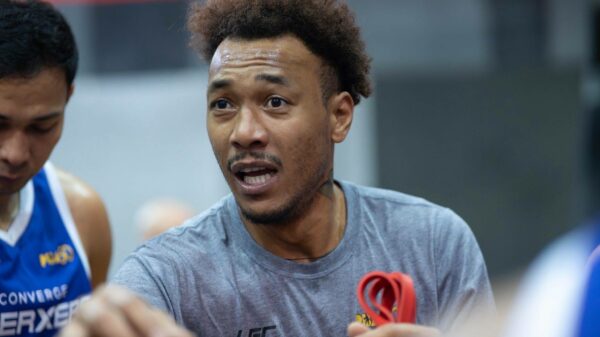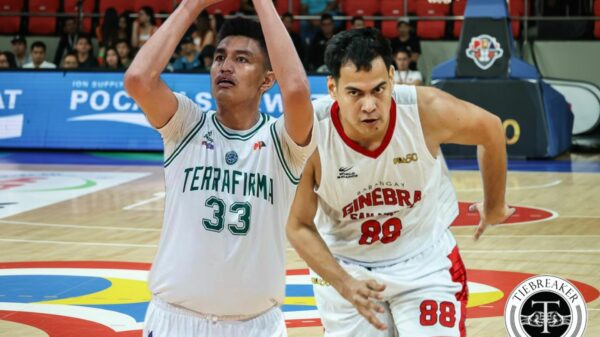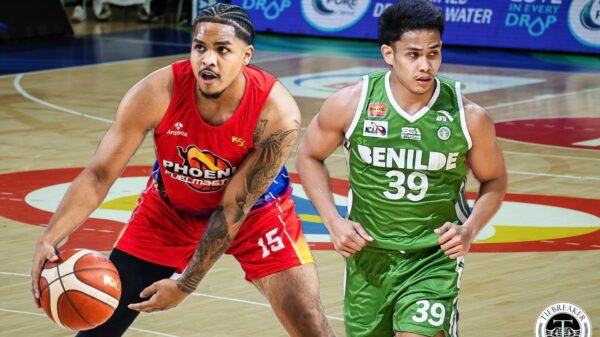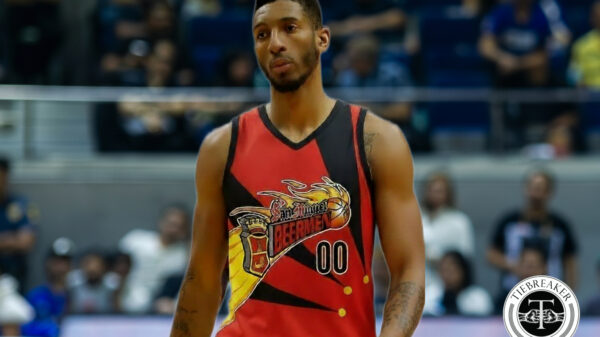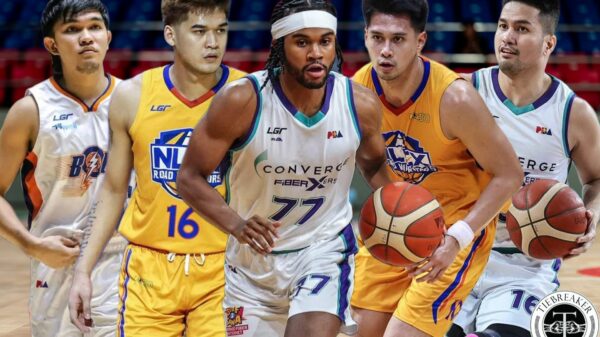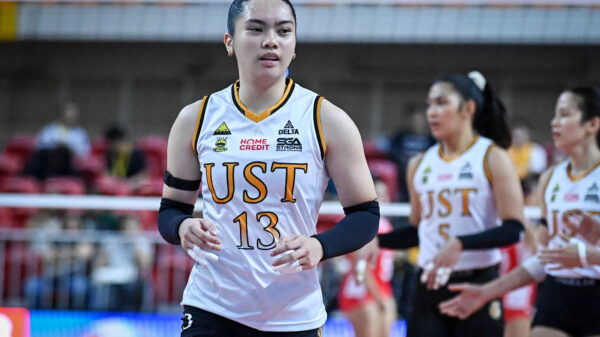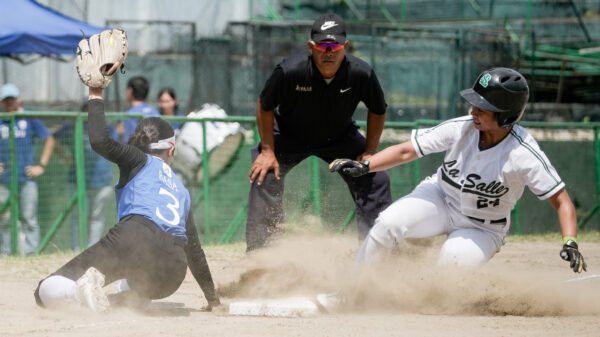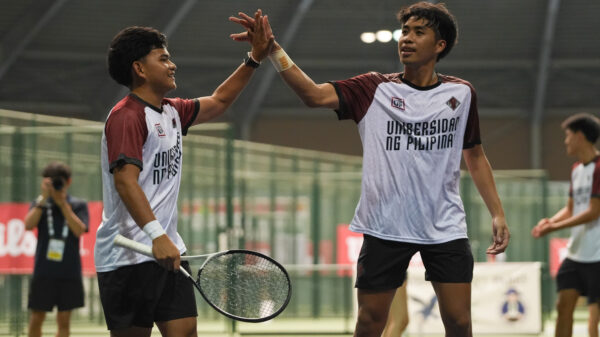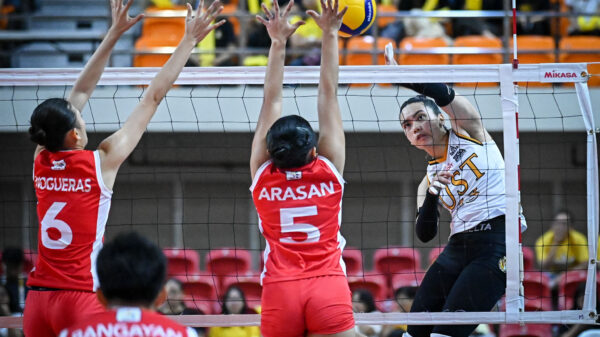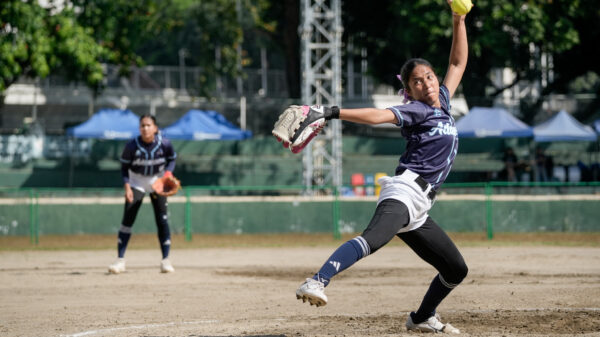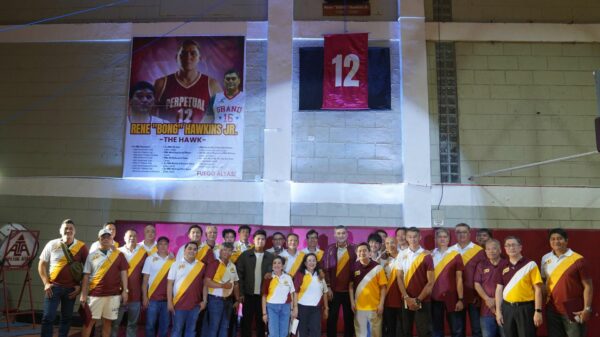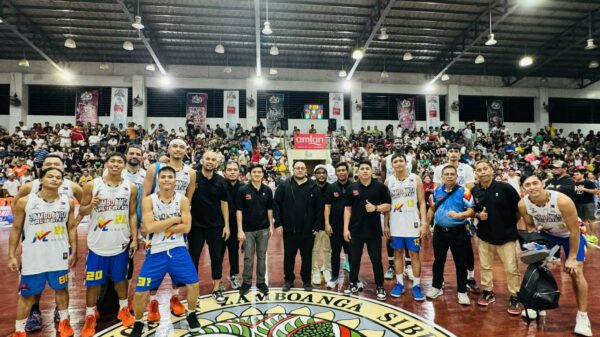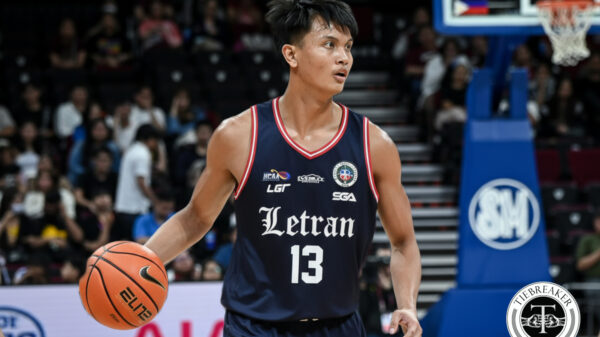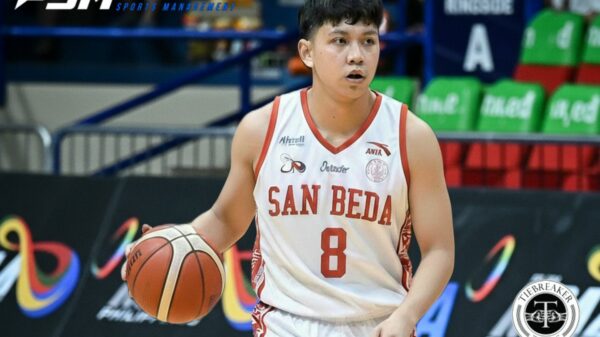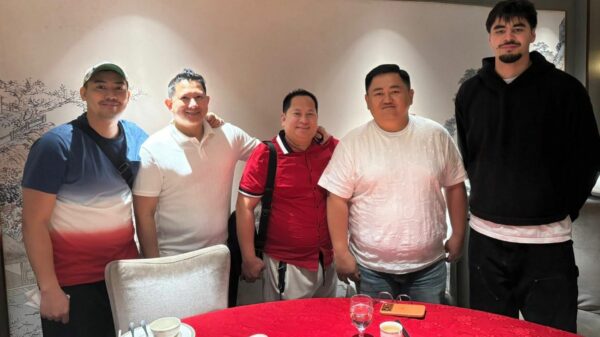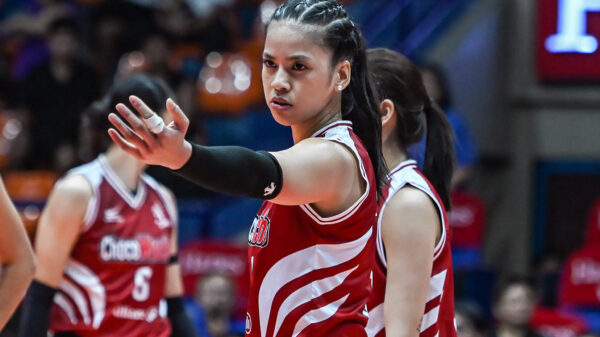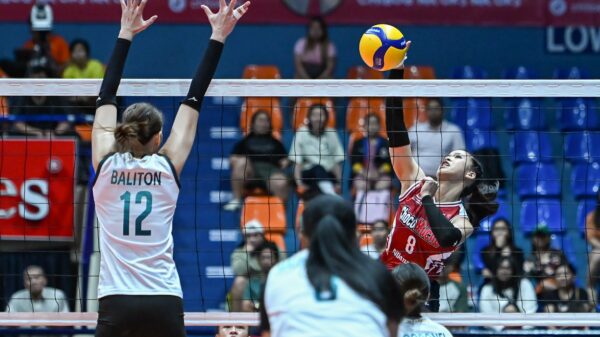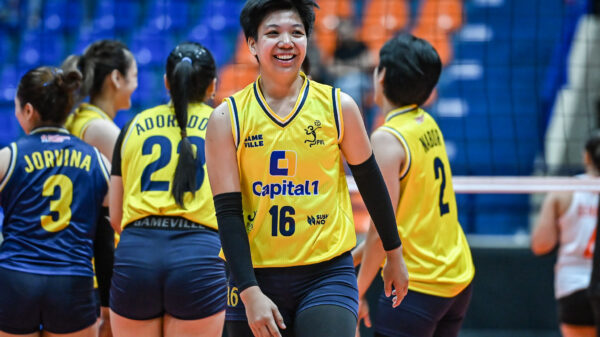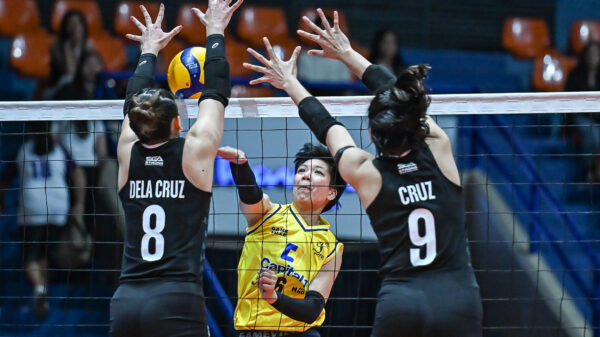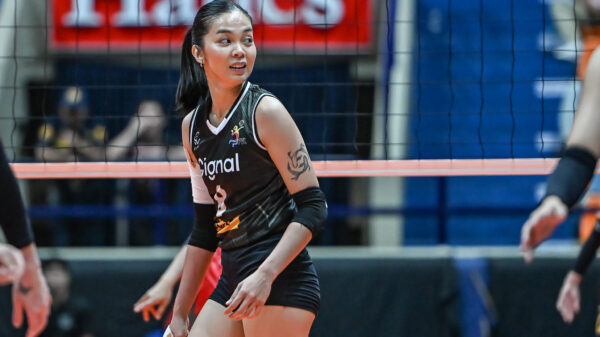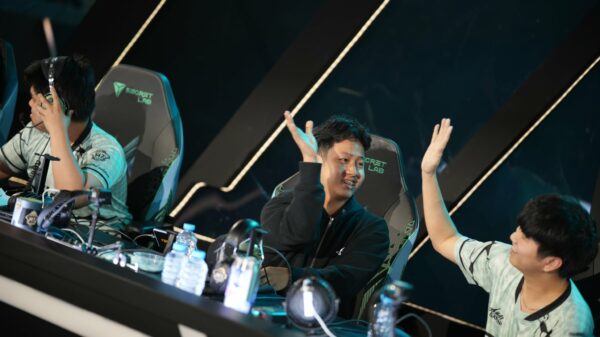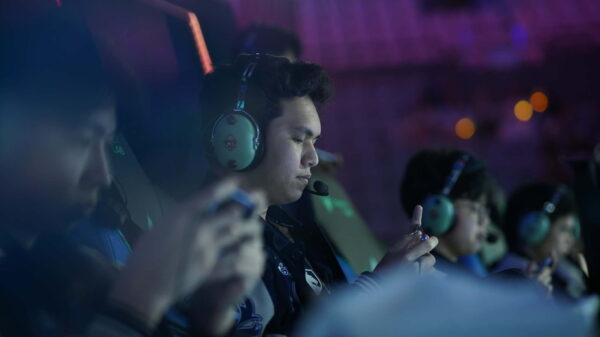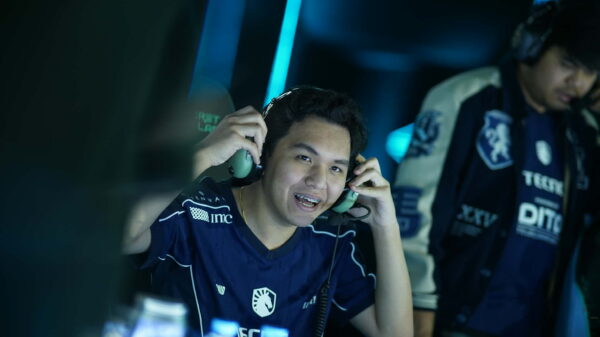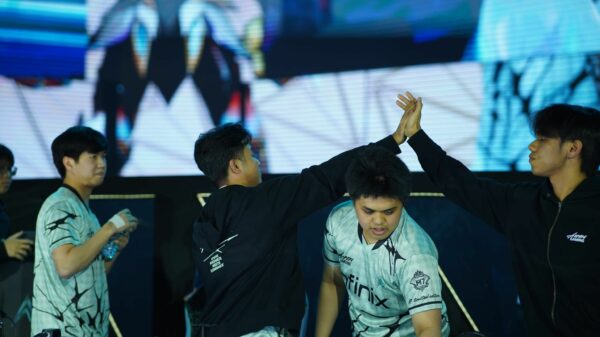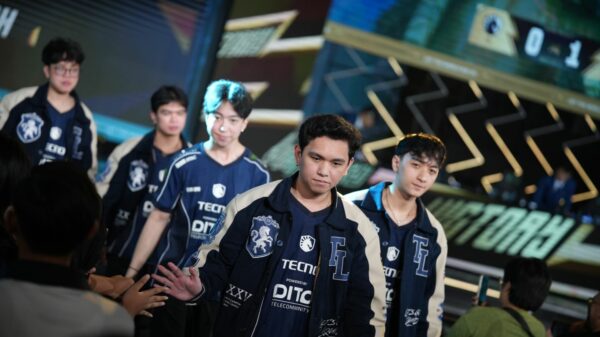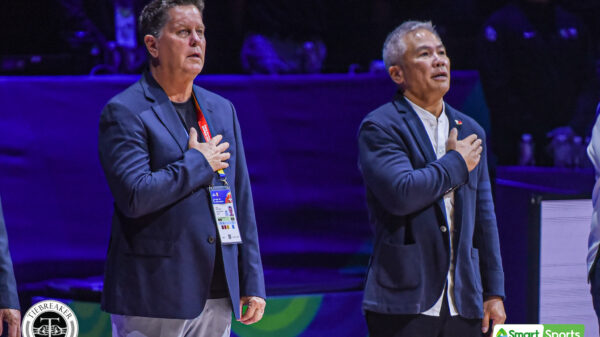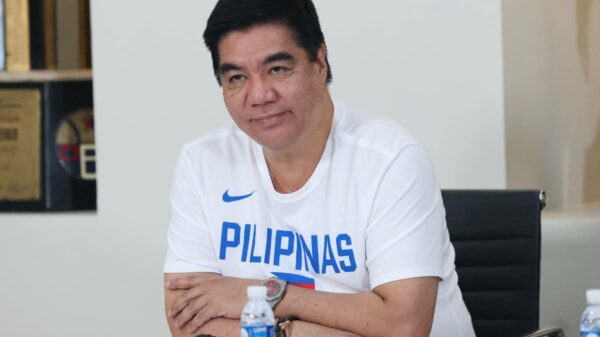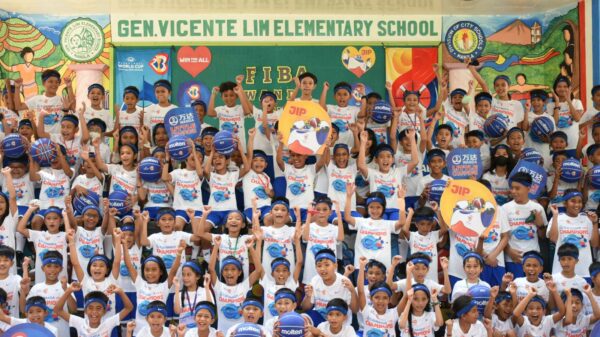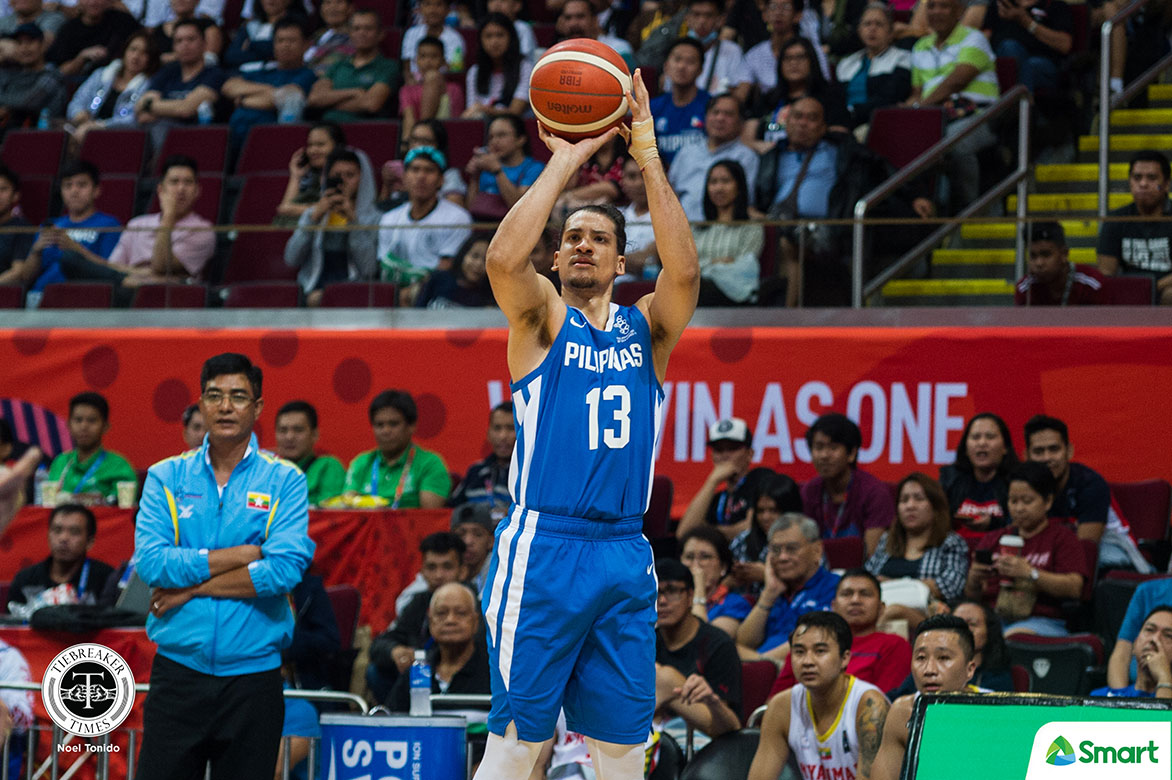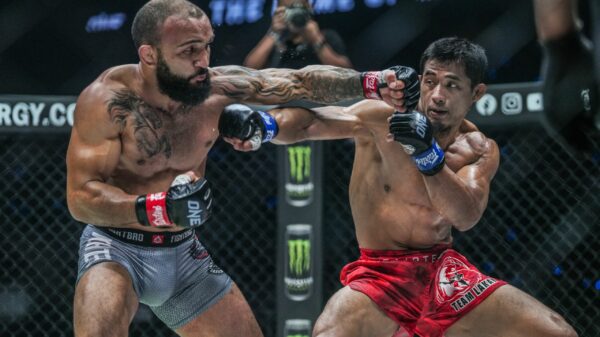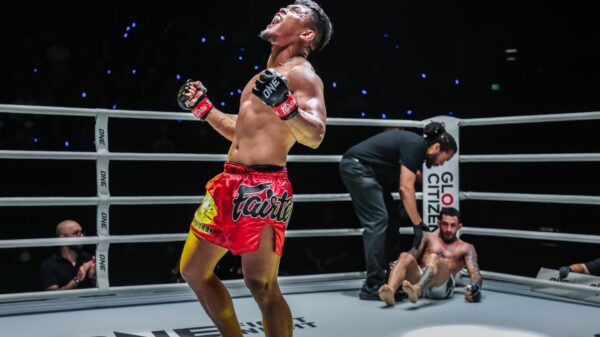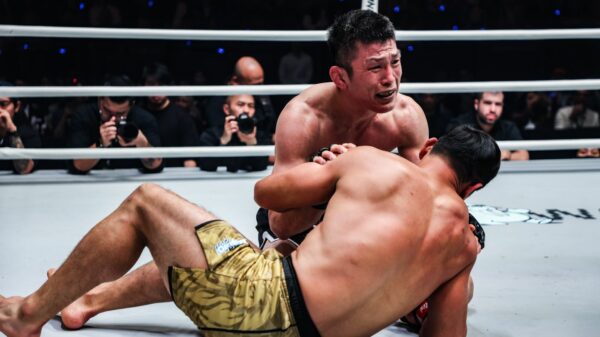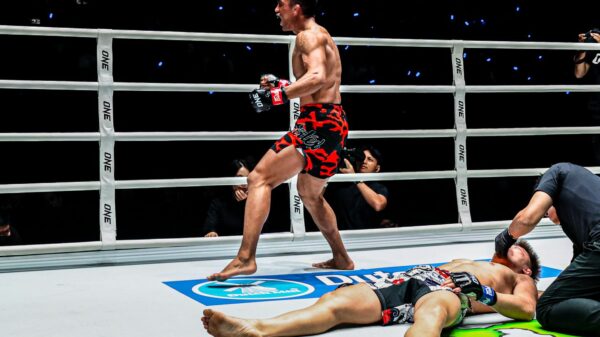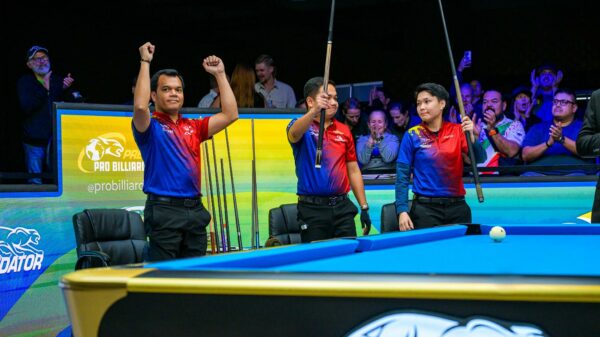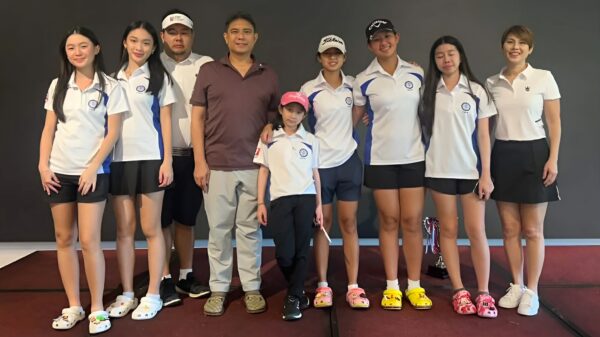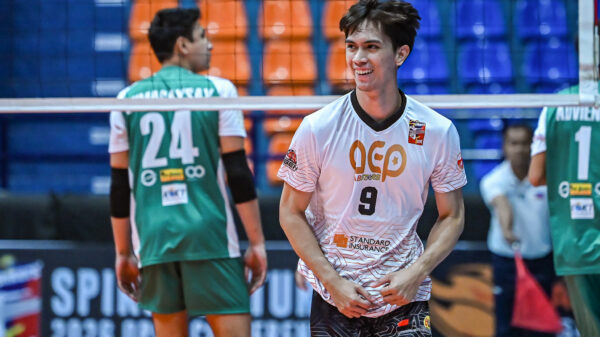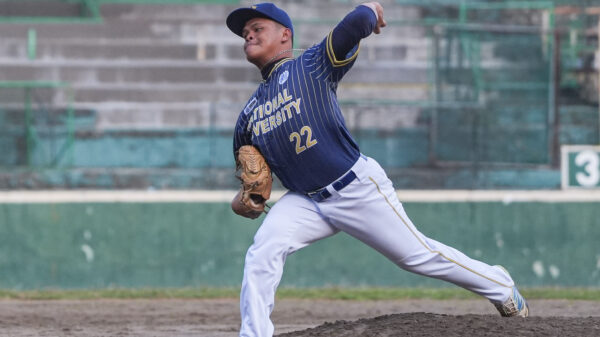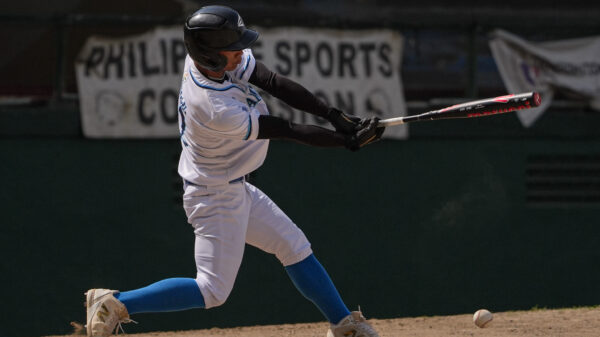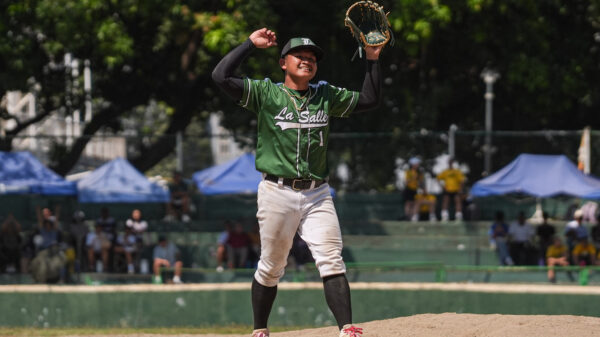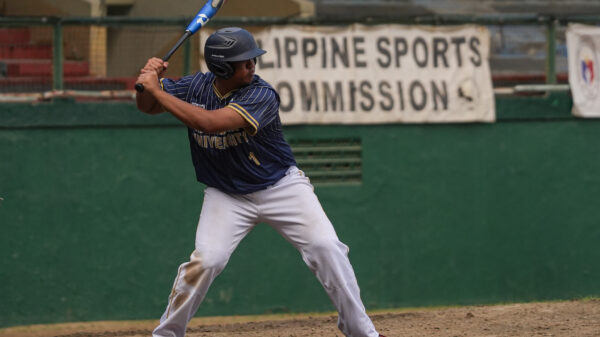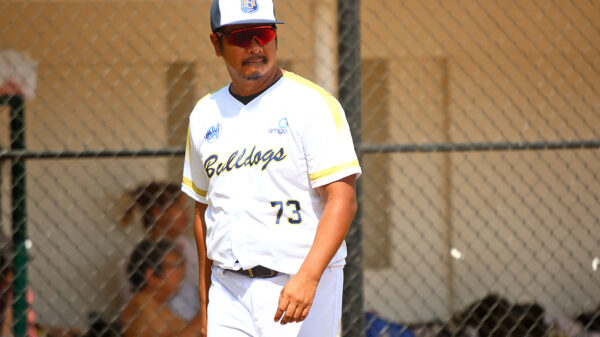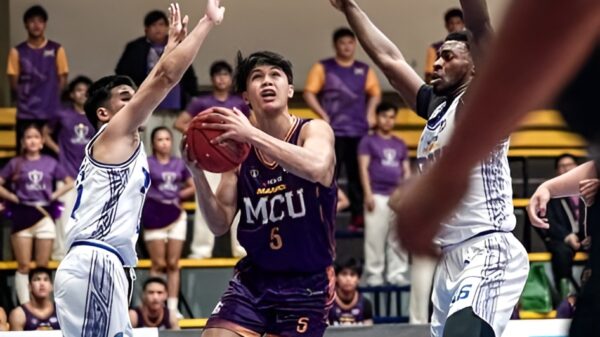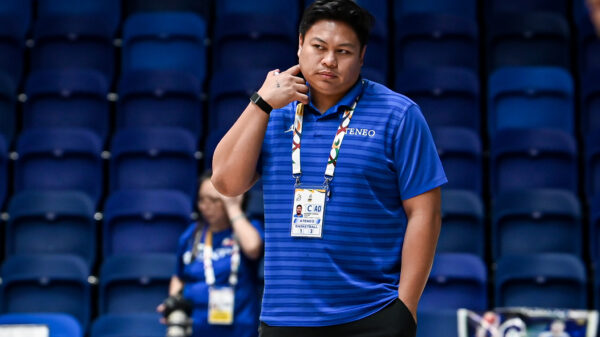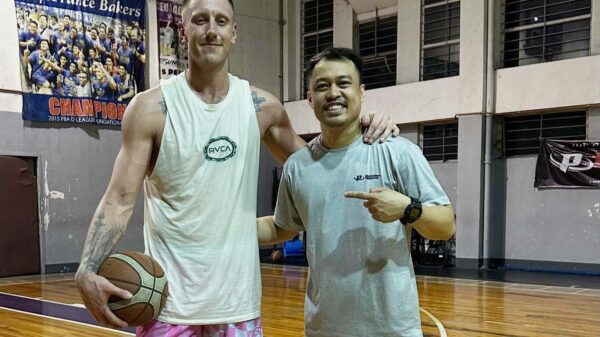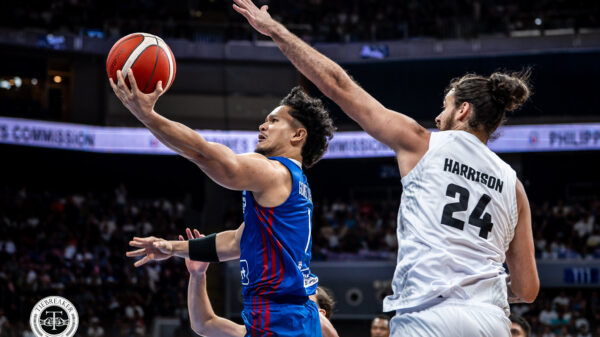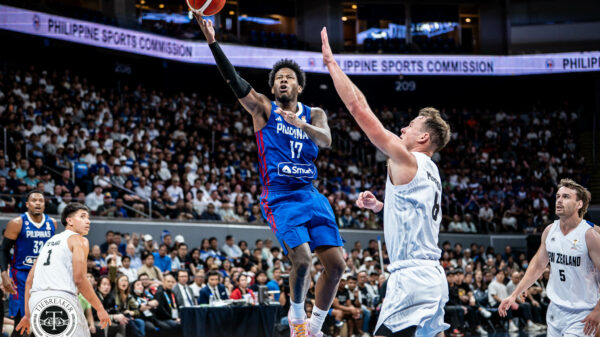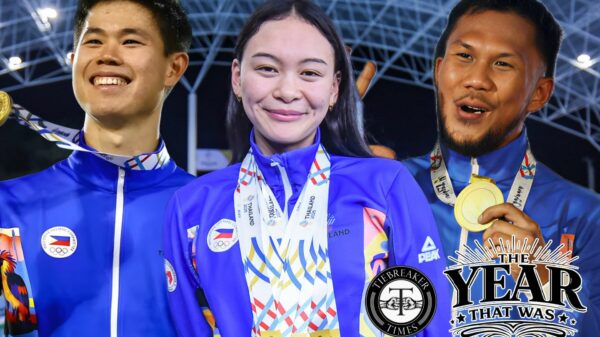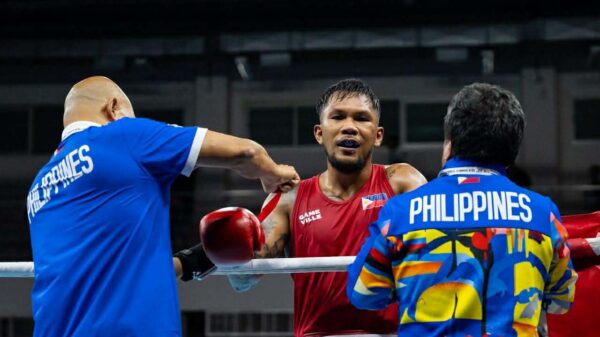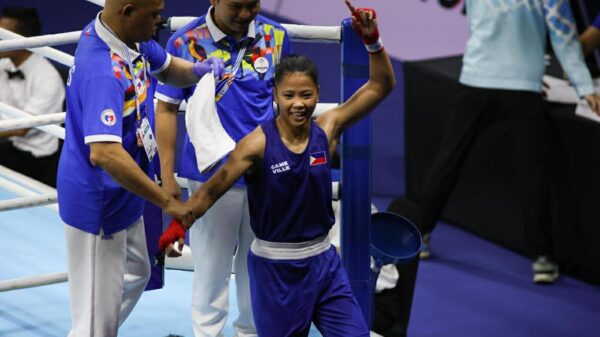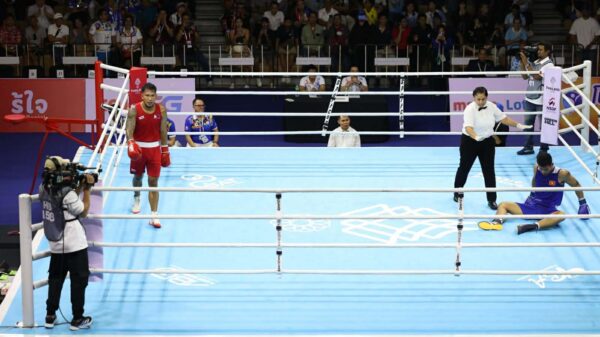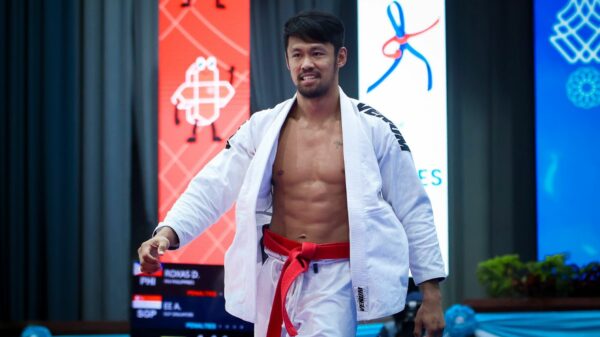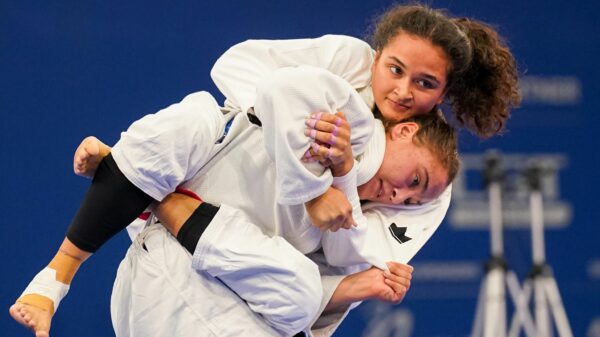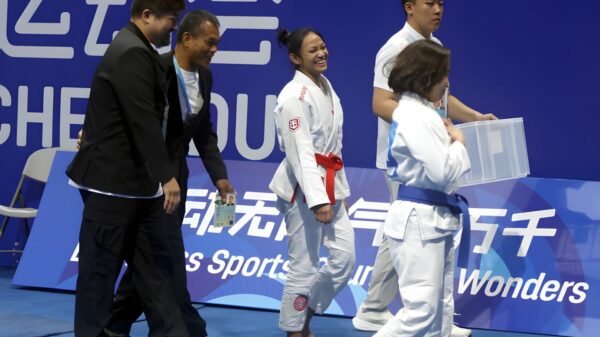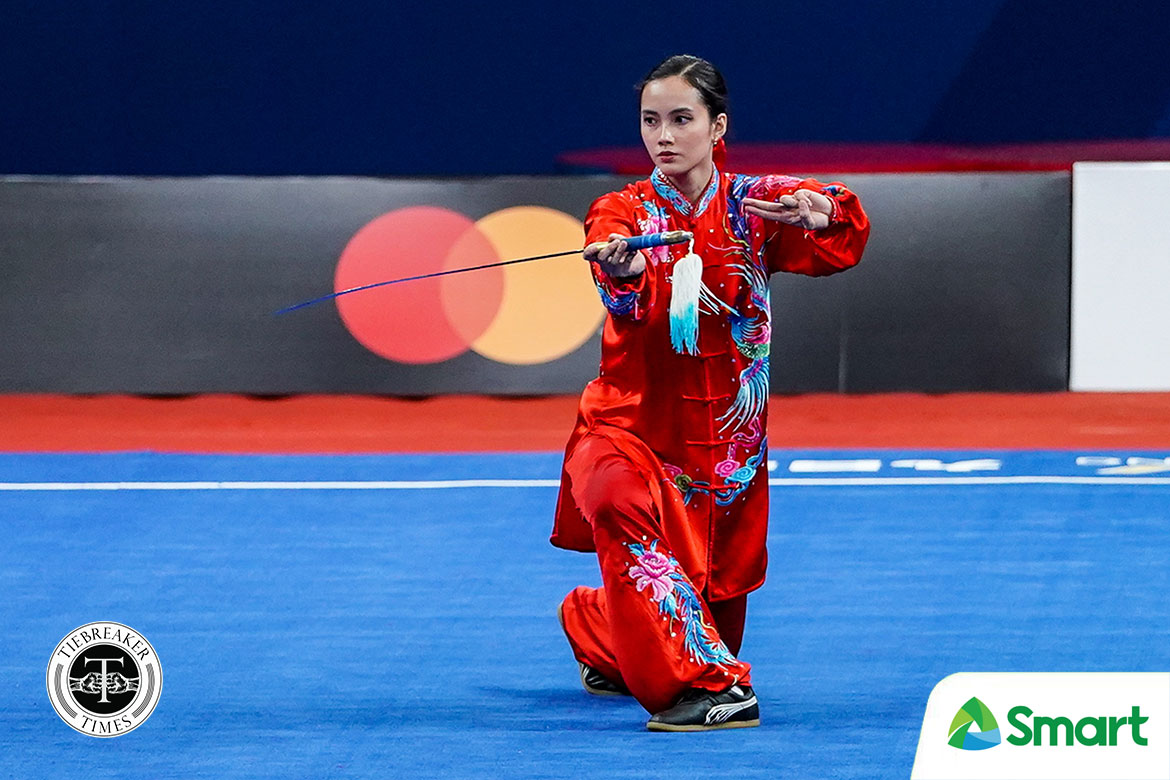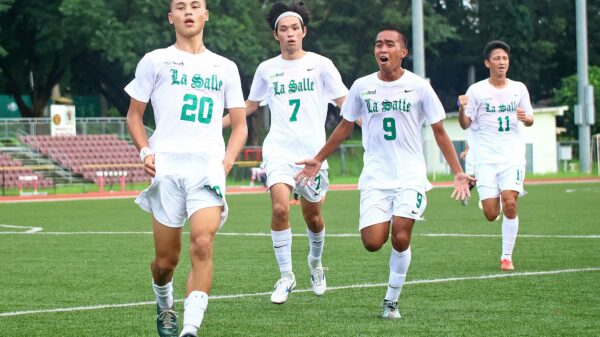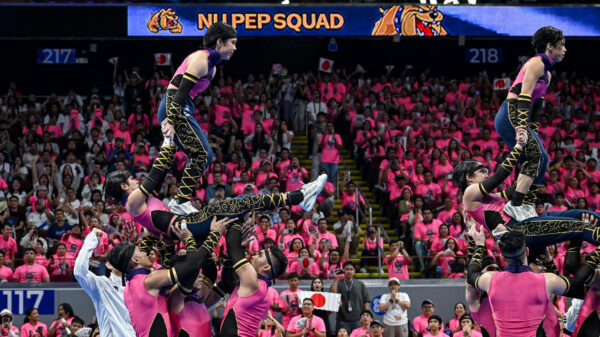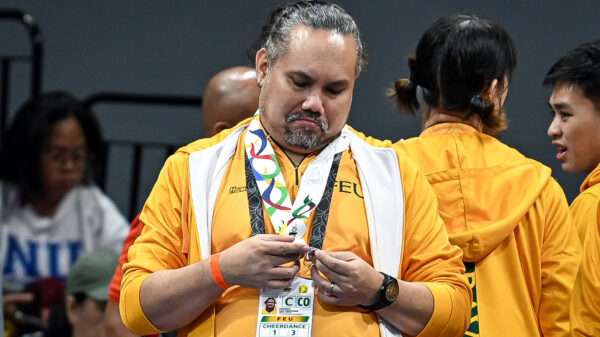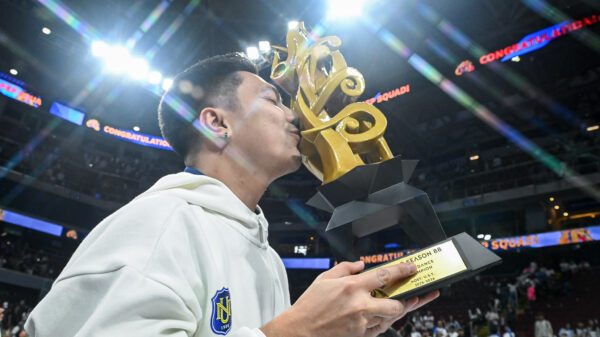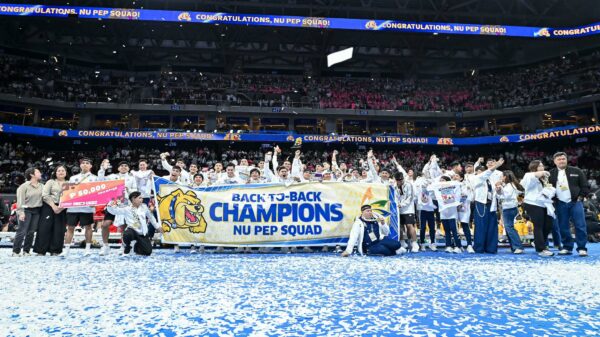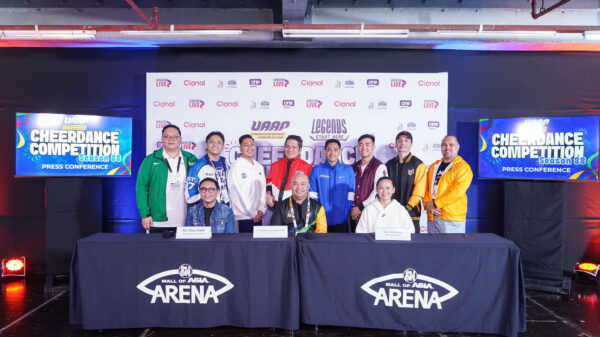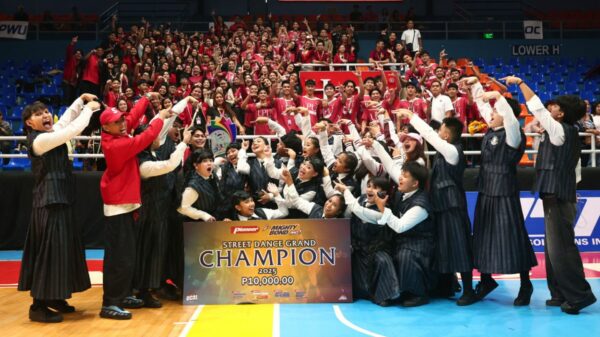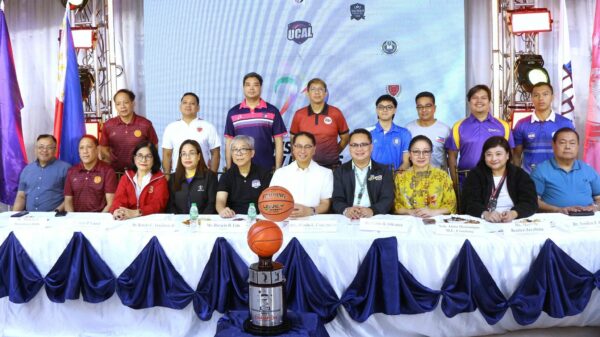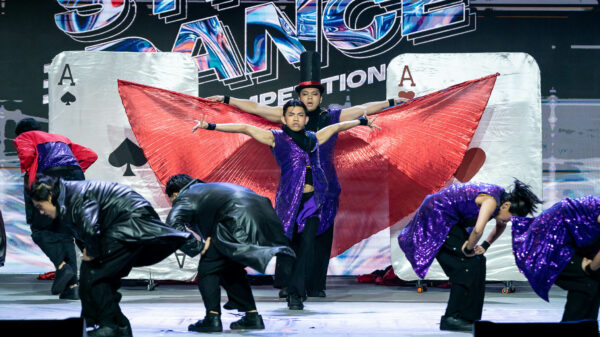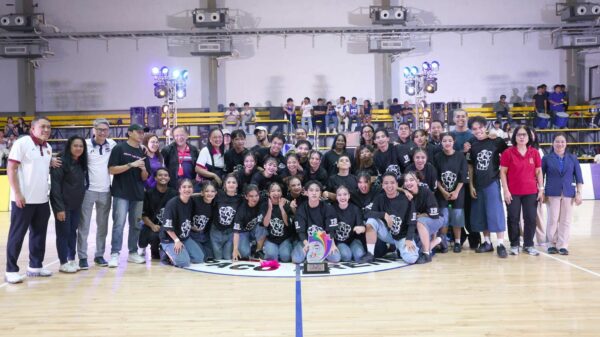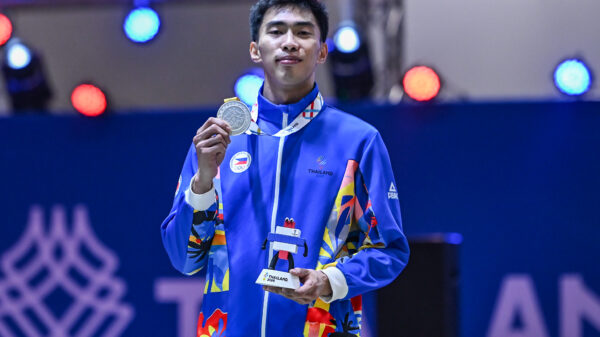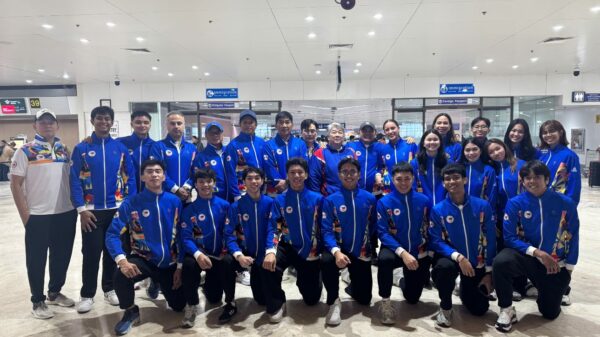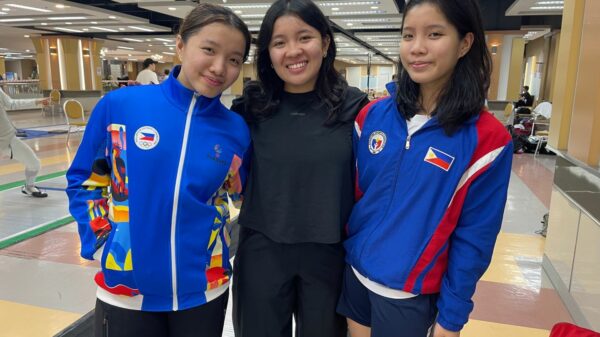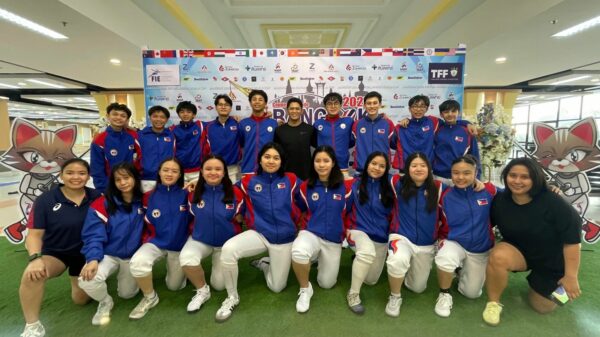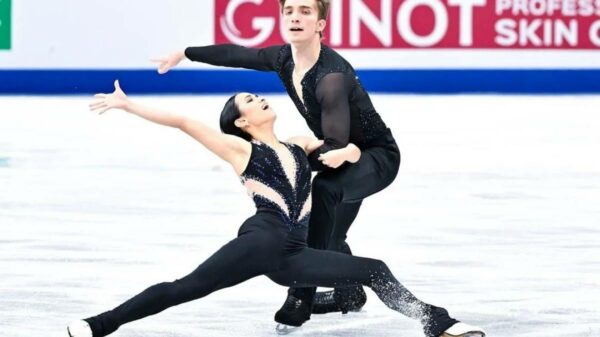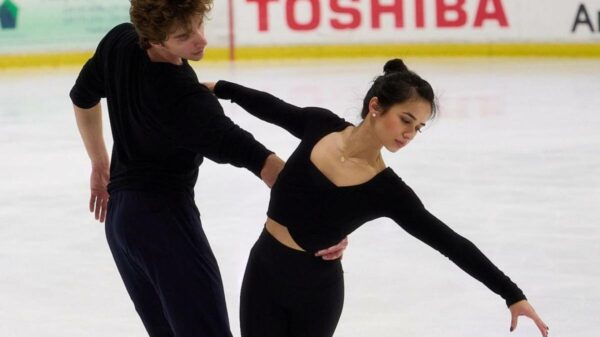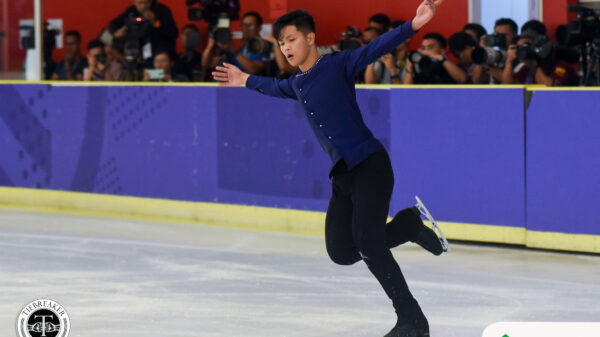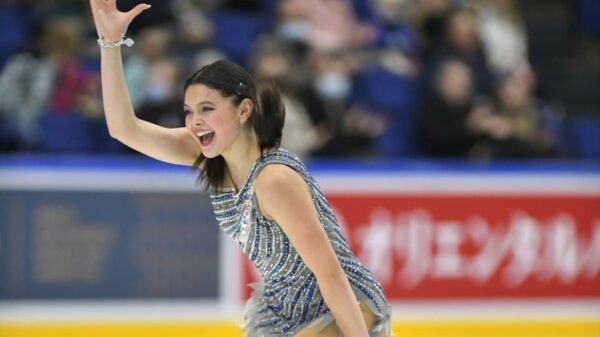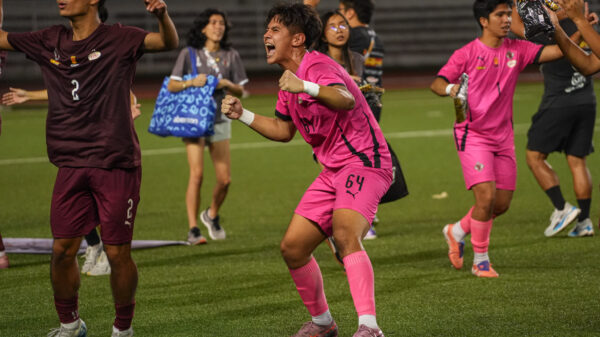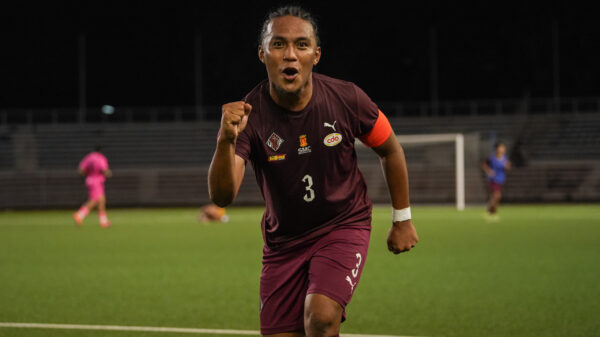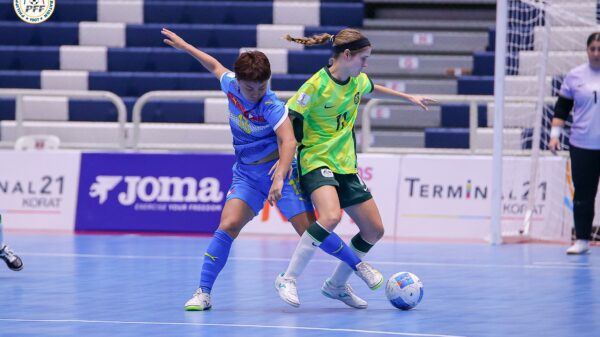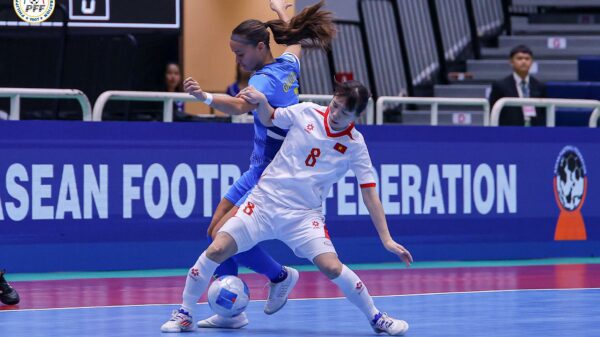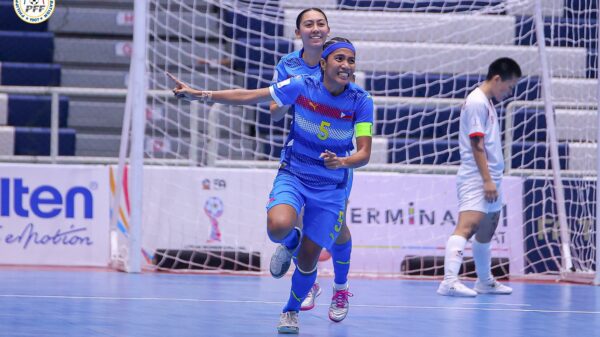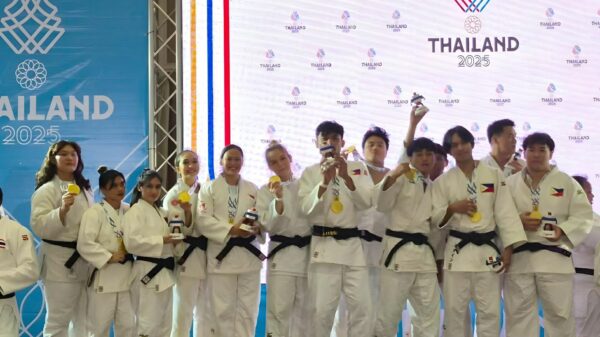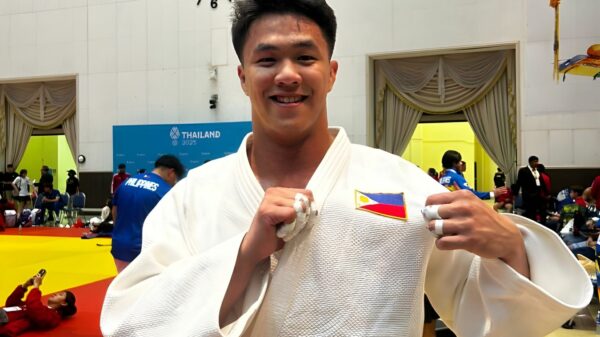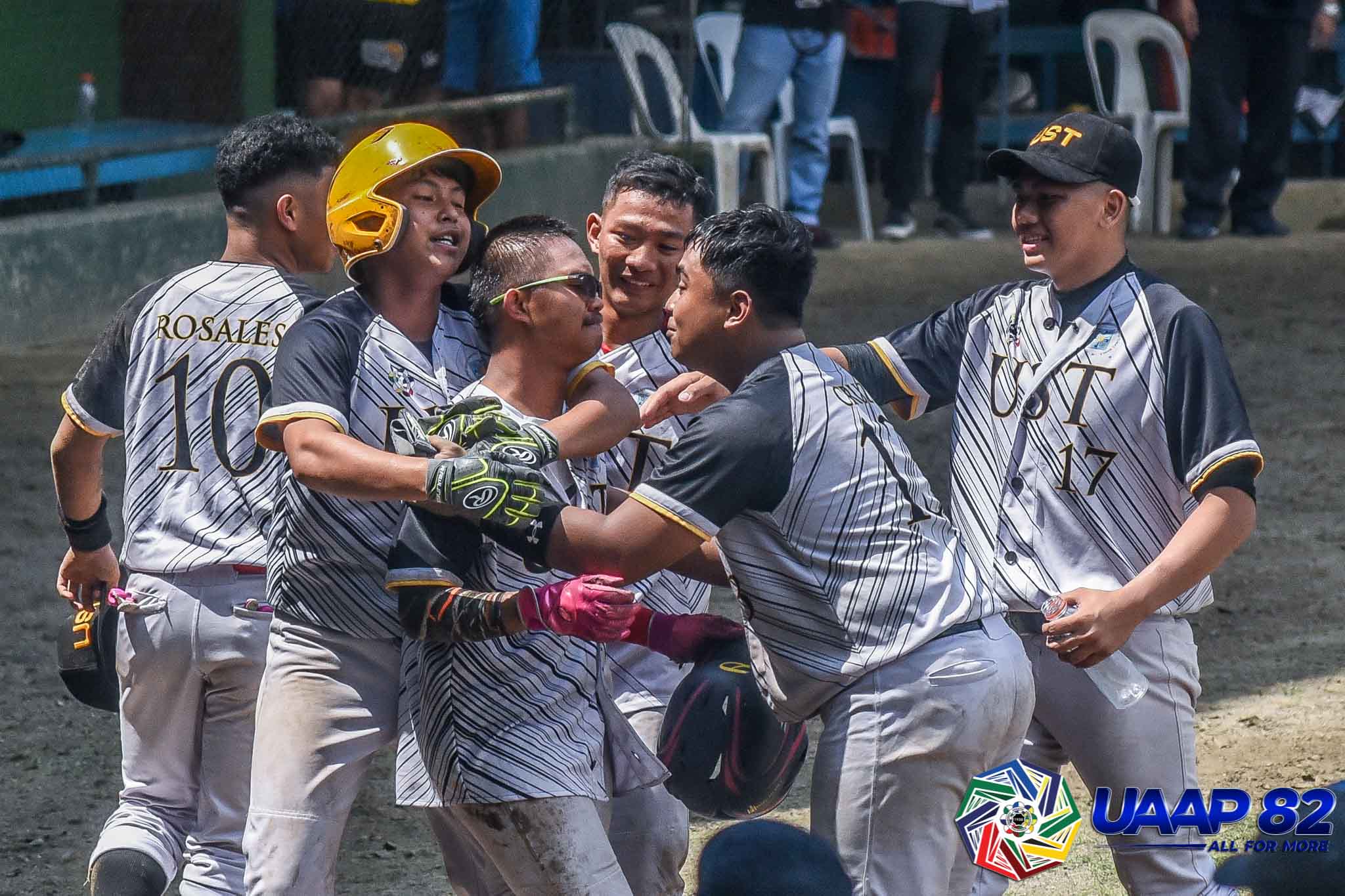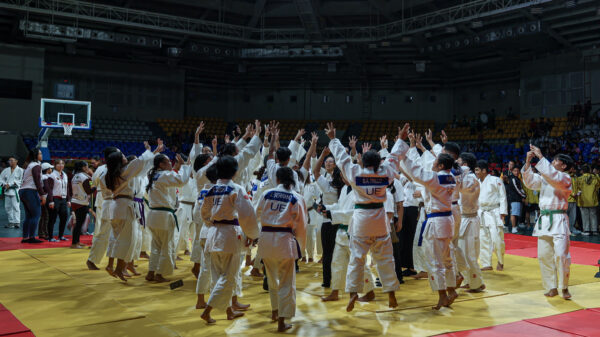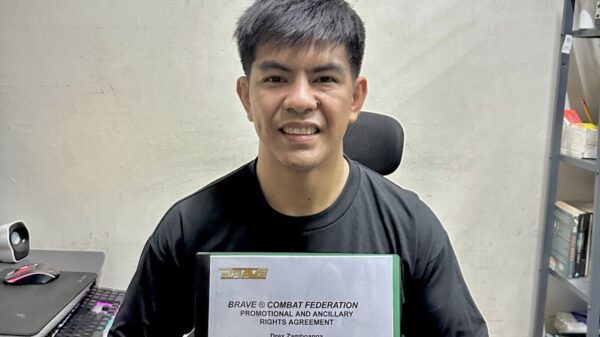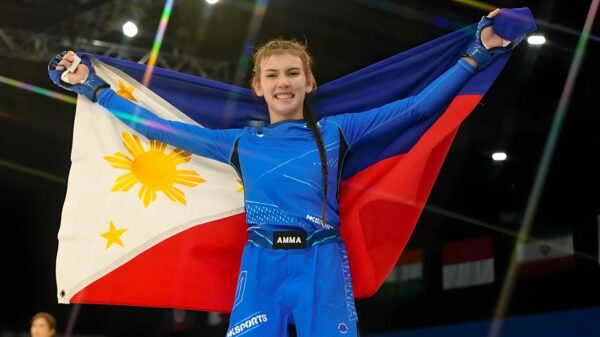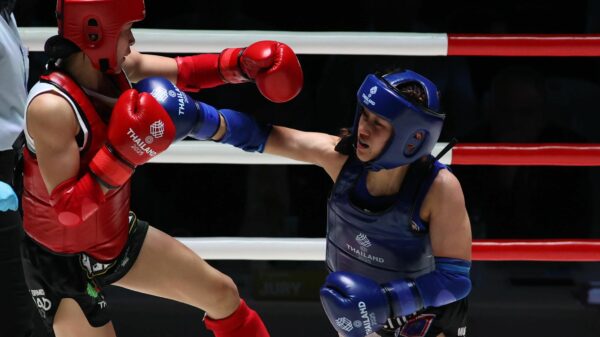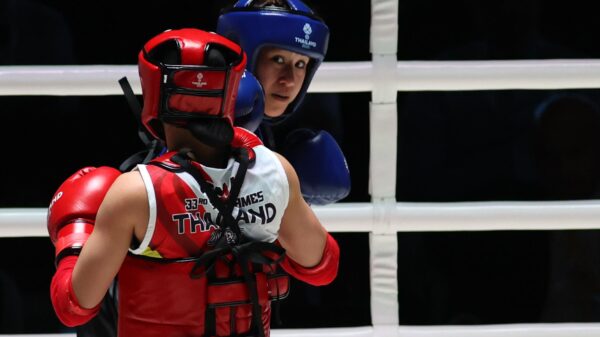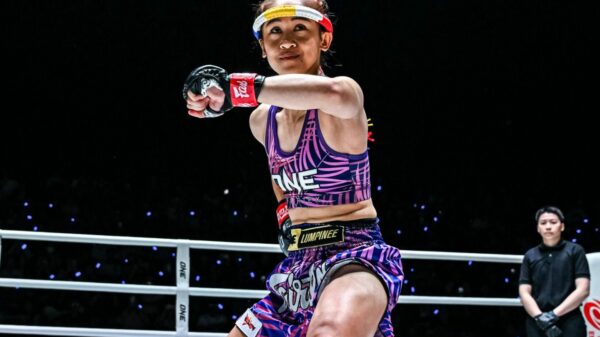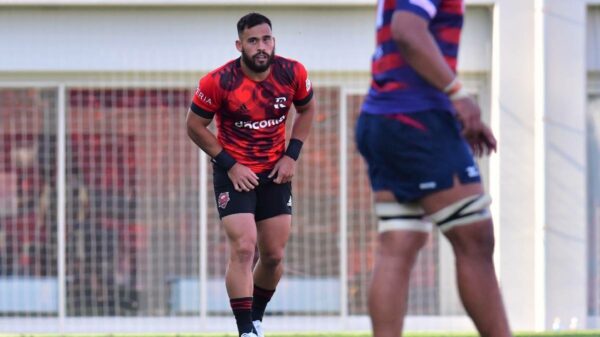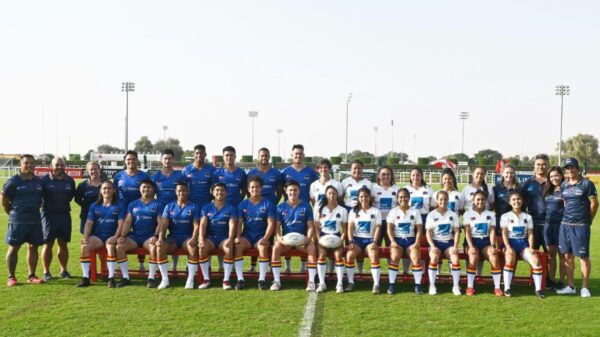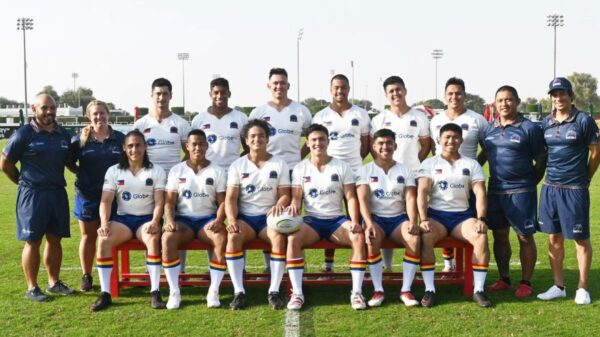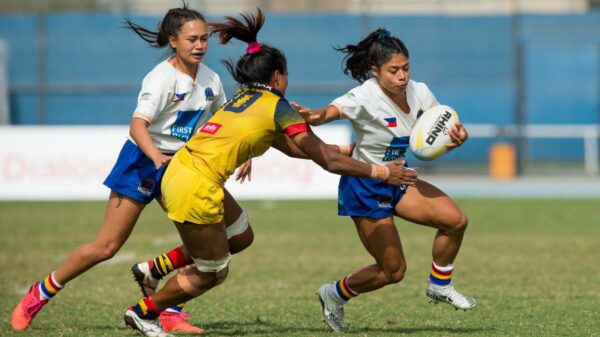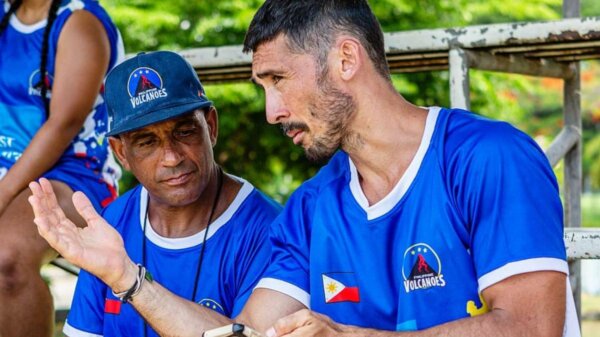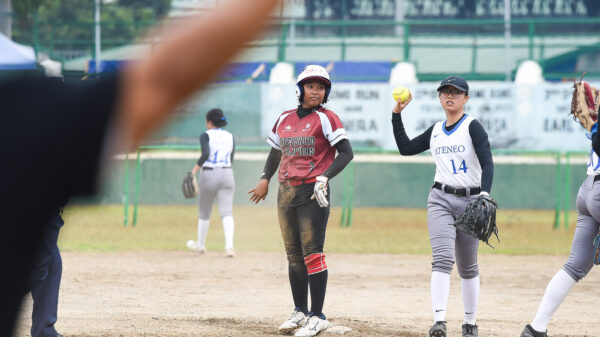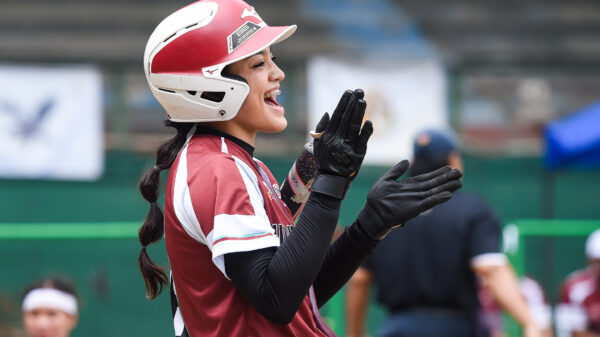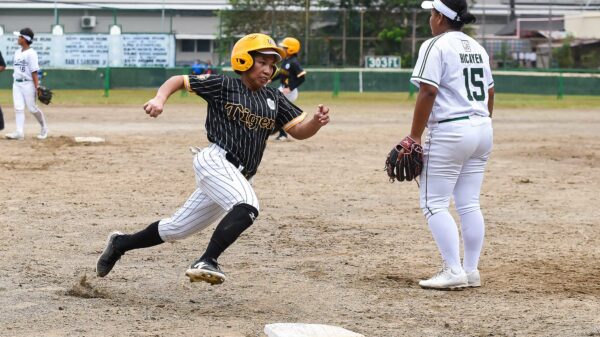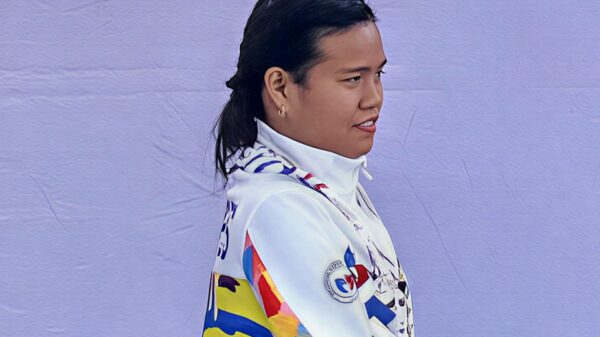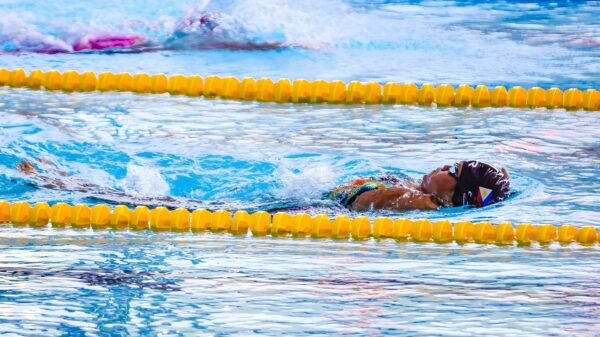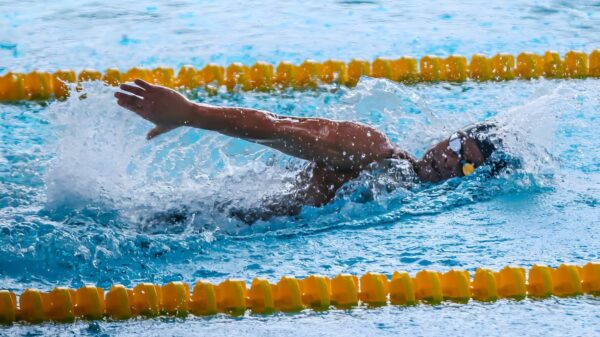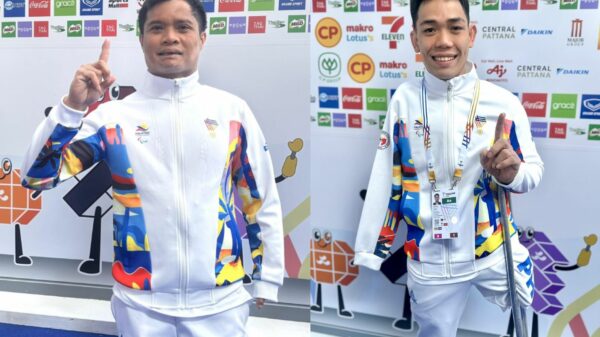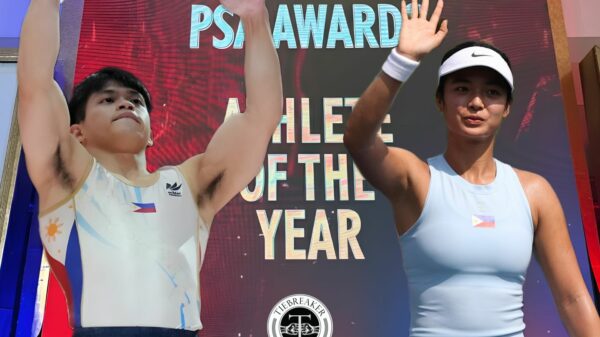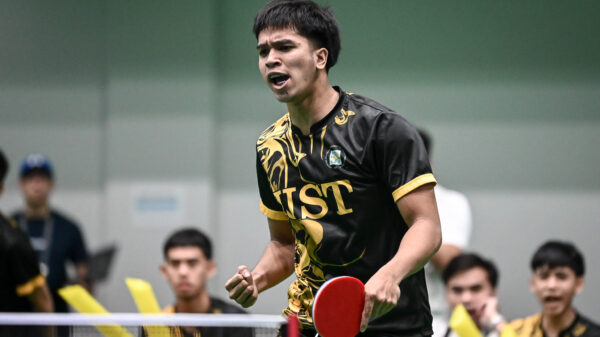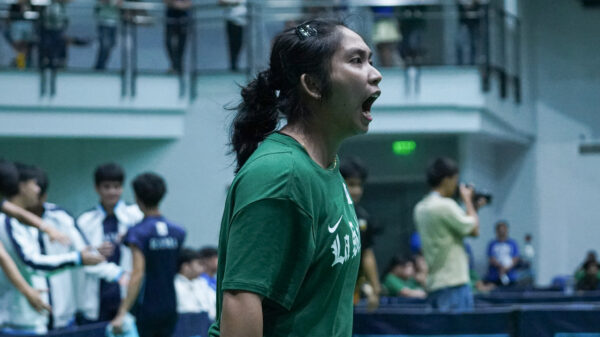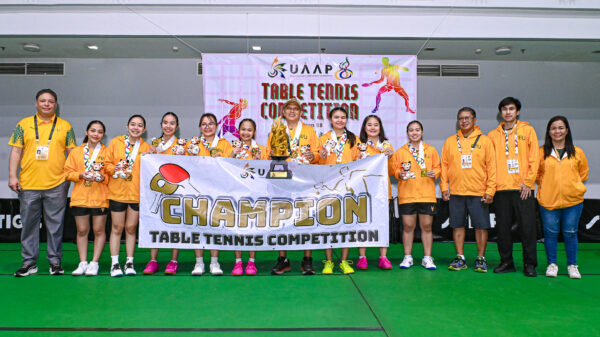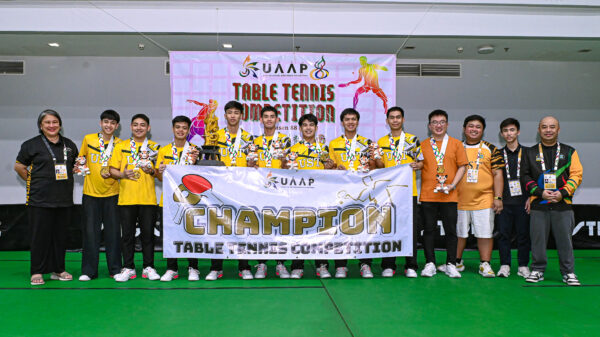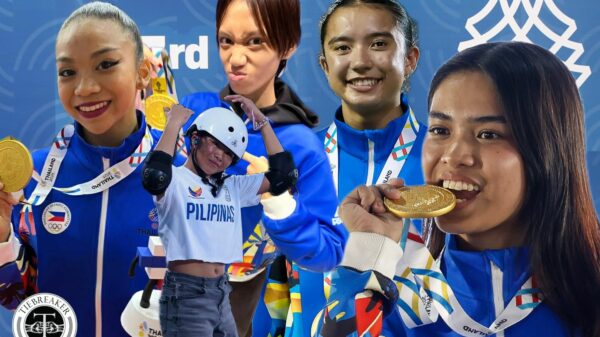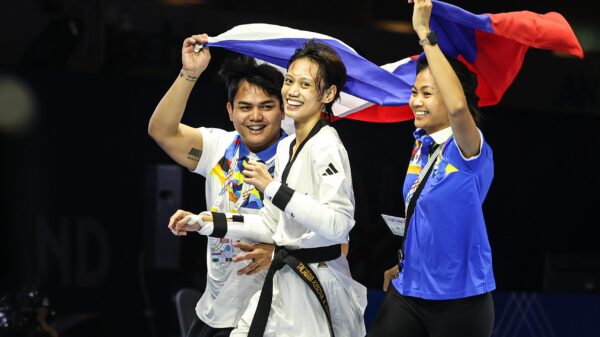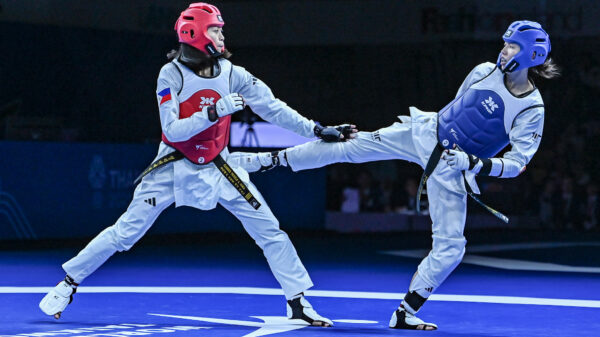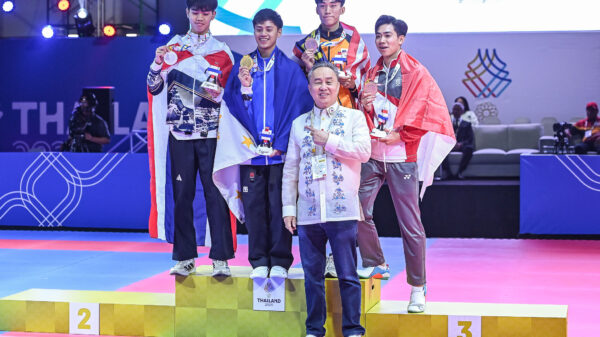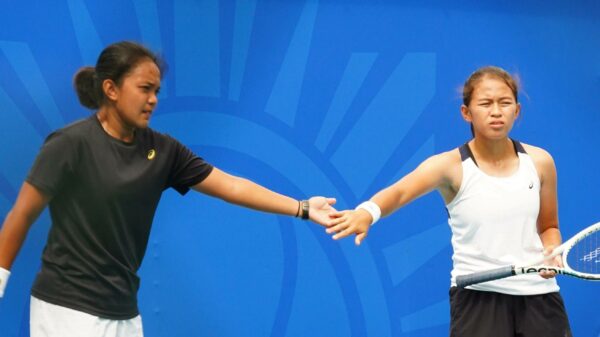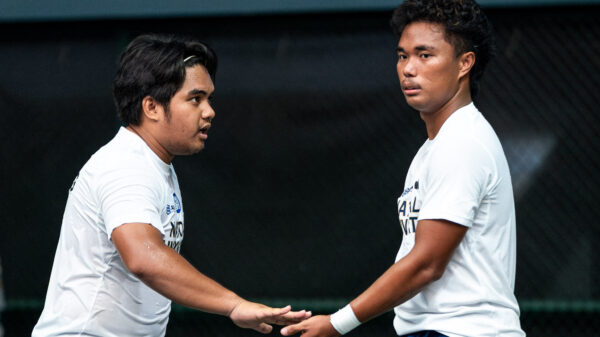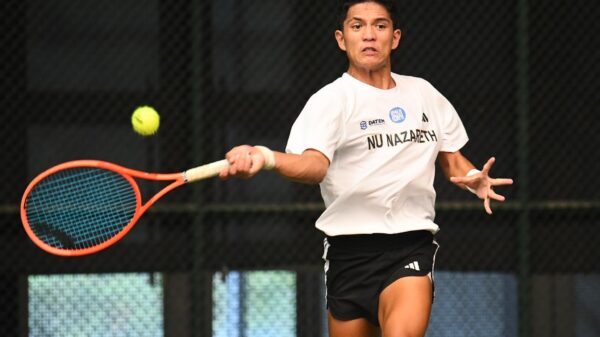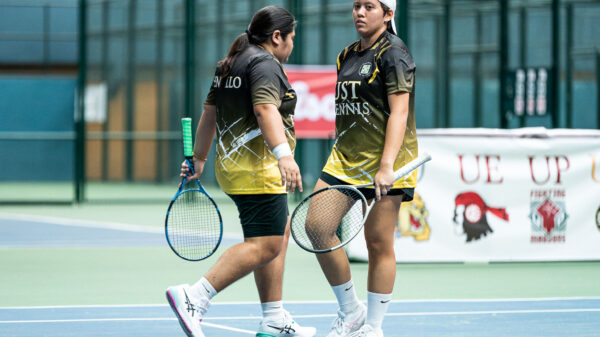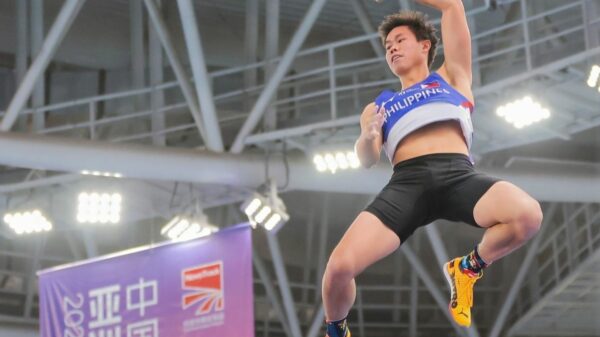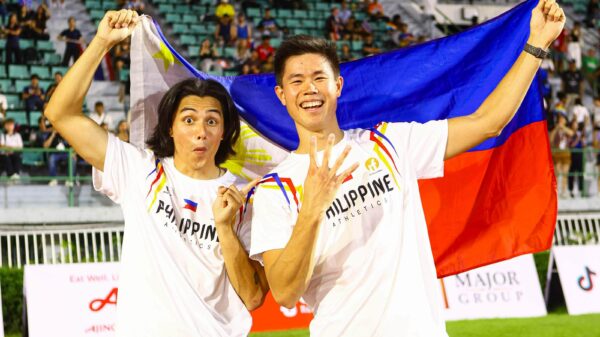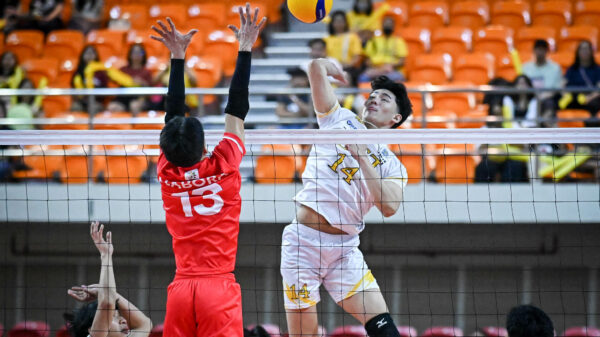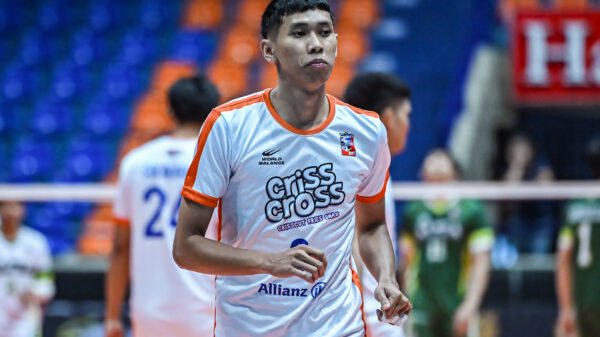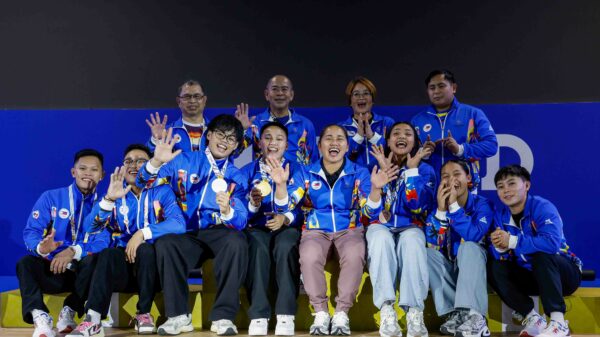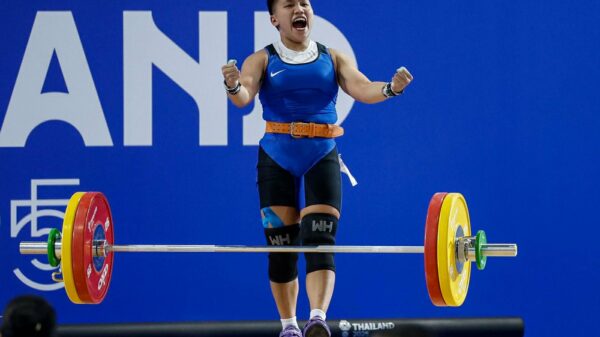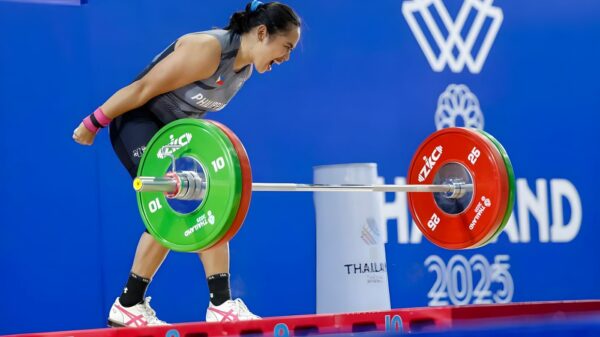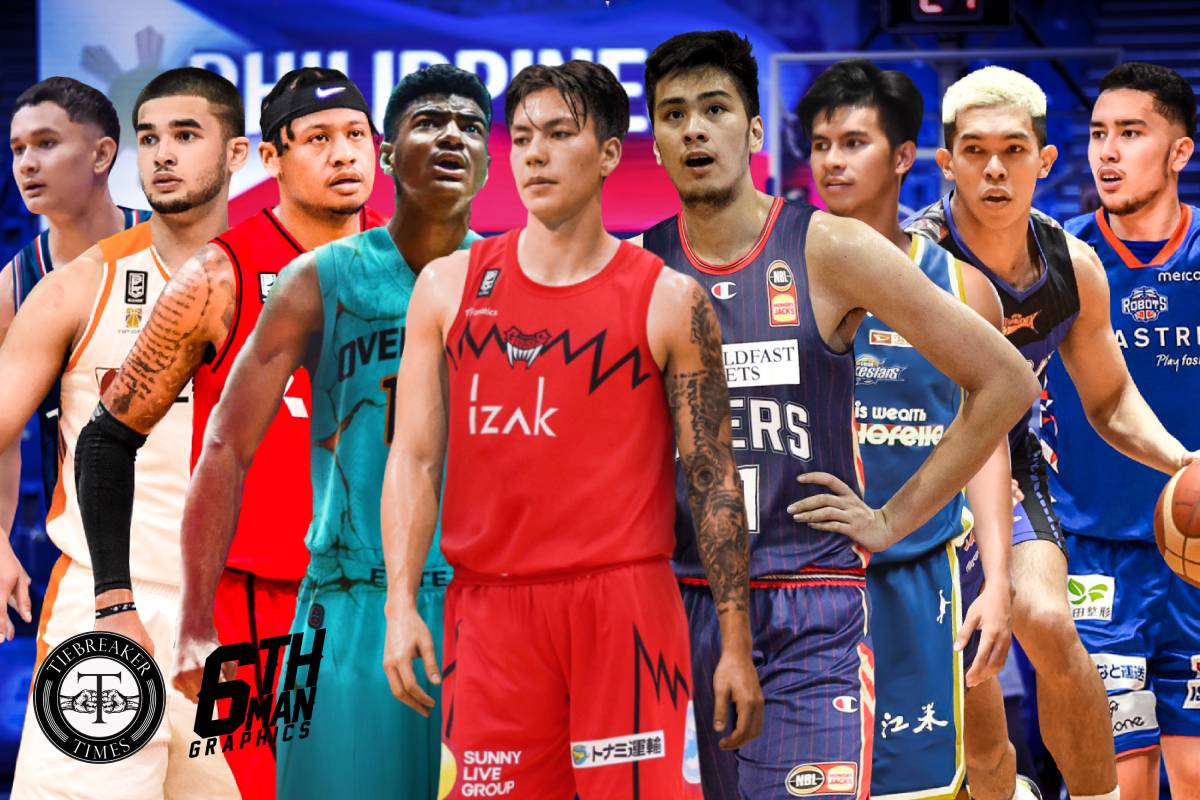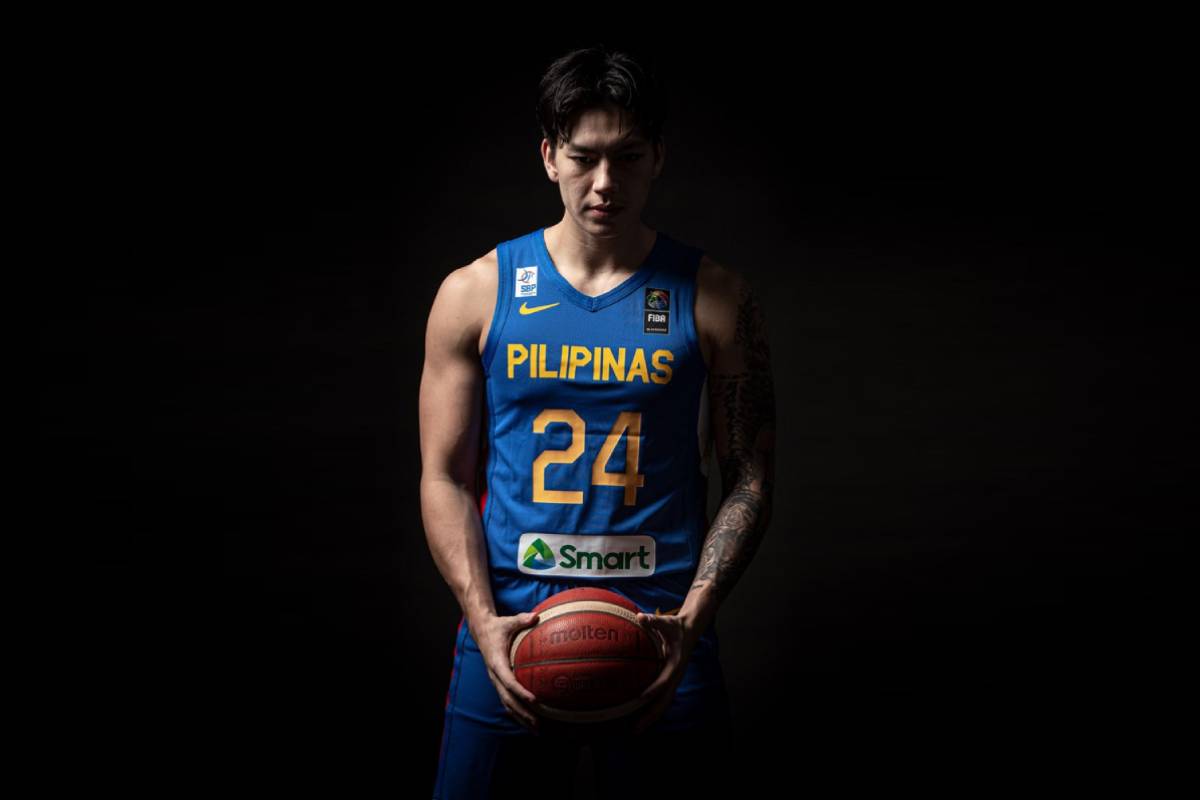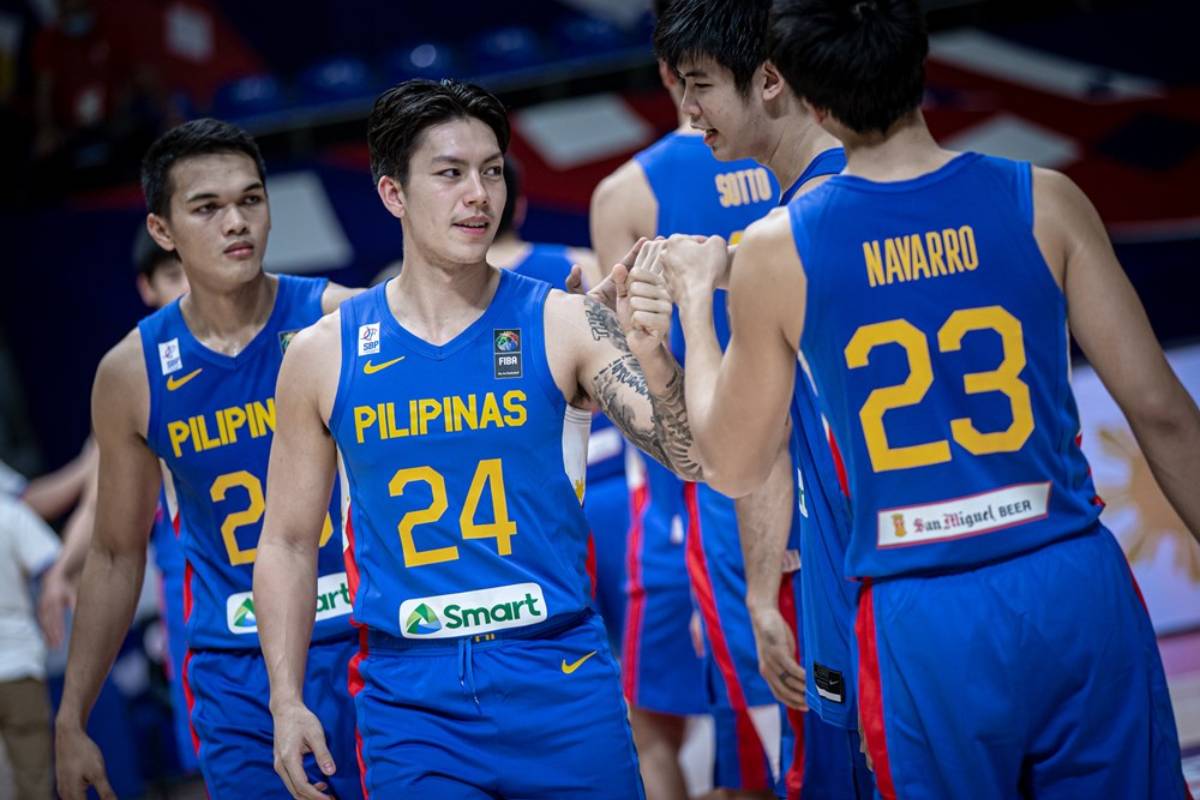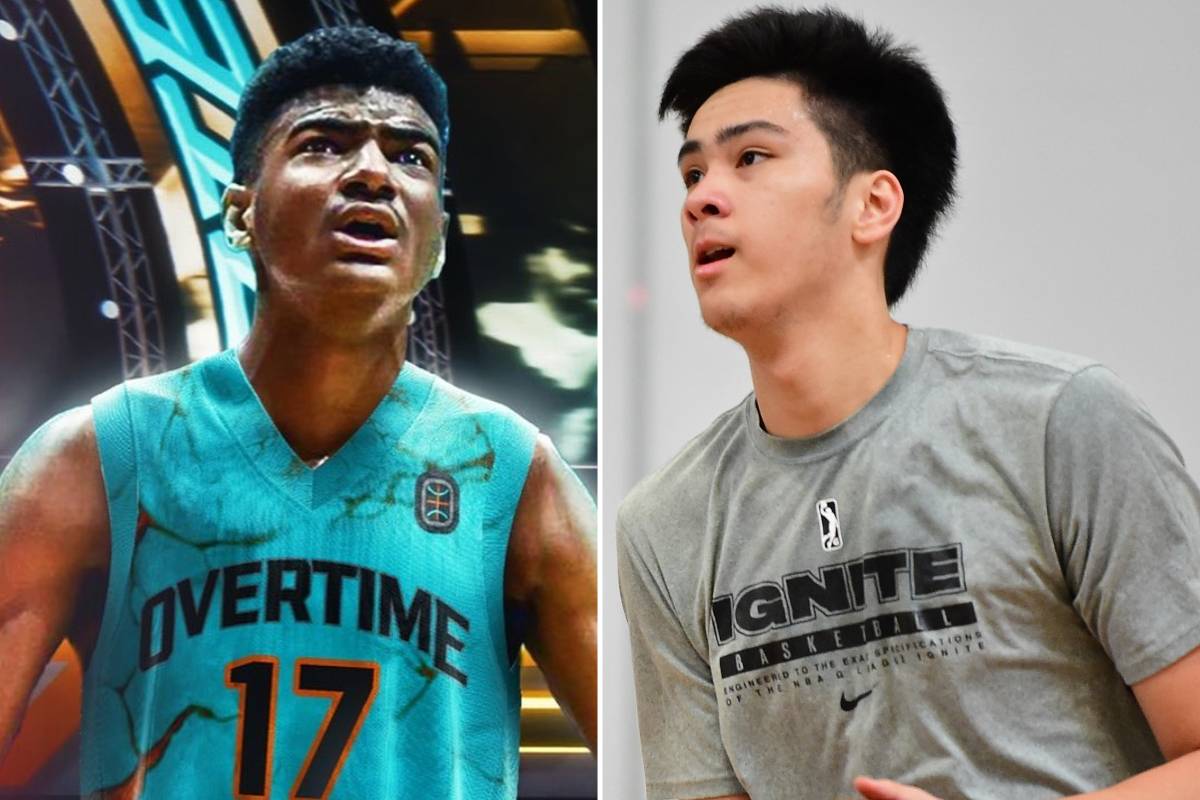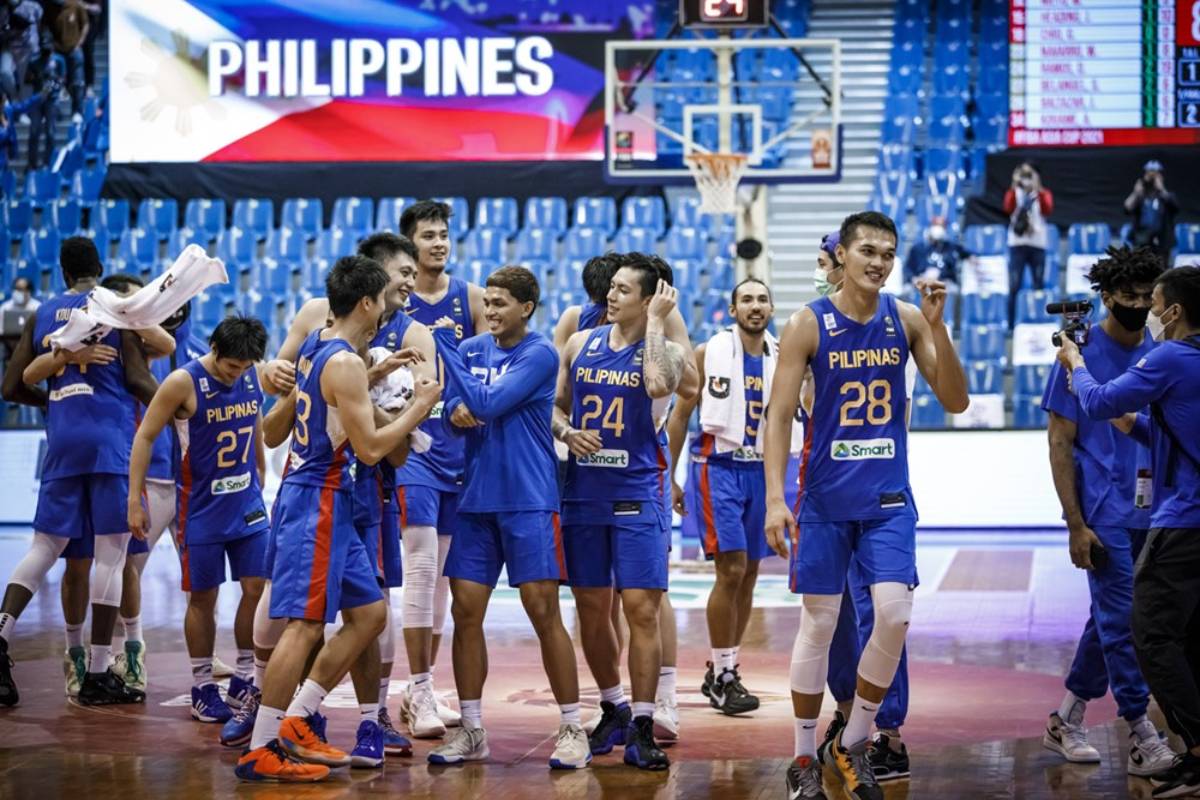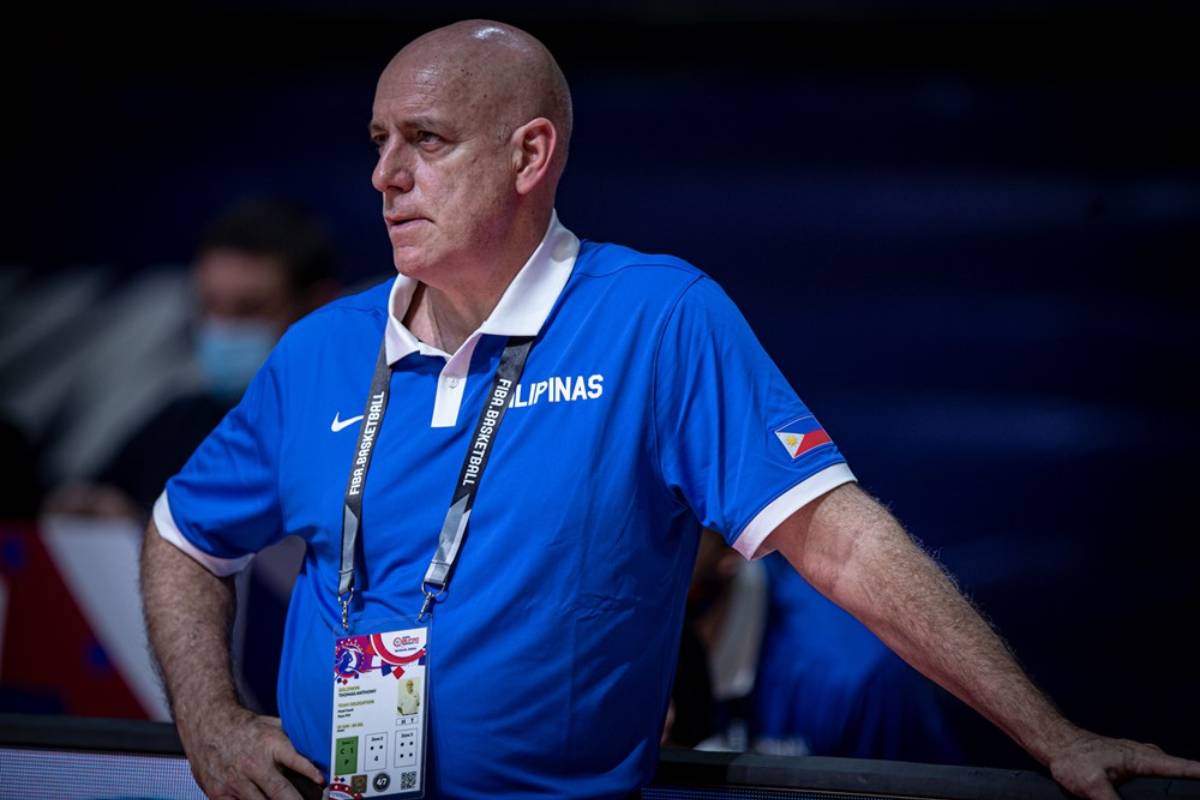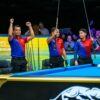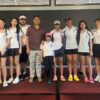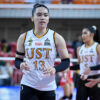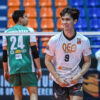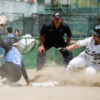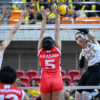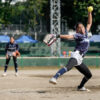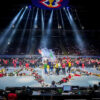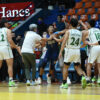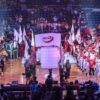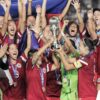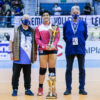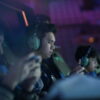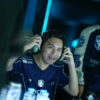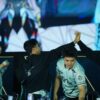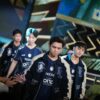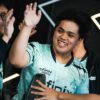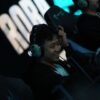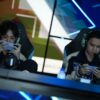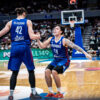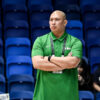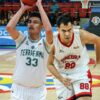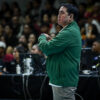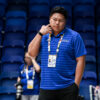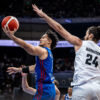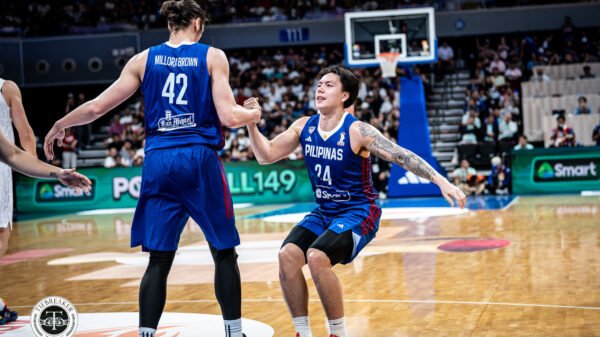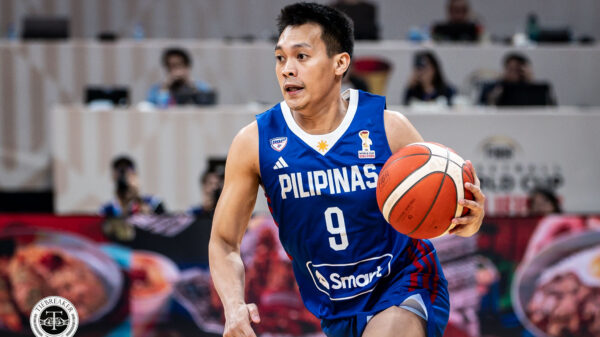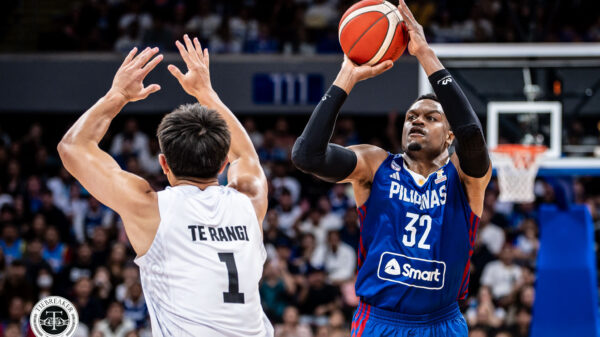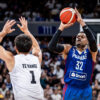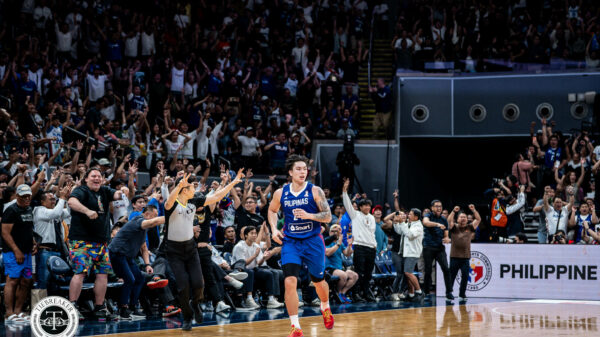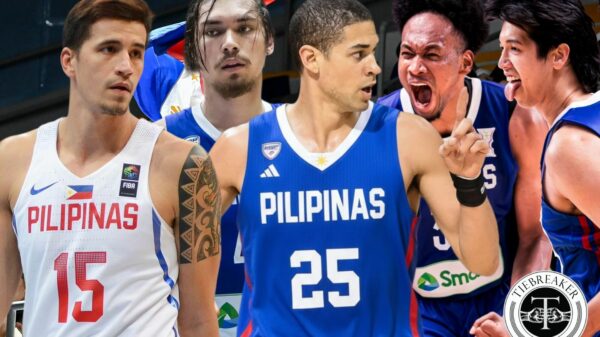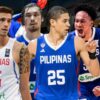Gilas Pilipinas program director and Ateneo head coach Tab Baldwin fully understands Dwight Ramos’ decision to turn pro in Japan.
After all, the University Athletic Association of the Philippines’ 84th season is still uncertain and that the 23-year-old Ramos only arrived in the country to play ball.
“Obviously, Dwight is ready for the pro game.
“For the whole pandemic, the amateurs sat on their hands and it has taken a big toll,” Baldwin told Tiebreaker Times. “Some players are doing their work and for players that are Dwight’s caliber, he had a choice to wait or pull the trigger to be a basketball player. He chose the other because he missed the basketball lifestyle.”
Being Ramos’ coach in Ateneo and in Gilas, Baldwin was regularly updated on his plans.
According to a source closely monitoring the situation, Ramos was close to signing with T1 team Taichung Suns before Gilas left for Jordan for the King’s Cup.
When a deal was not reached, the B.League’s Toyama team came calling.
Ultimately, it was Ramos and his camp who made the choice to sign and turn pro.
“There was never a time he asked advice from me. He kept me ‘abreast’ that he was considering an offer but never asked me about it,” said Baldwin. “From my understanding, he was in careful consultation with his agency Titan and PJ [Pilares].
“The ultimate decision was made at that level.”
Baldwin bared that losing Ramos will be tough for Ateneo and “just a little” tough for Gilas.
“It changes his status as a Gilas player but we have to move on.”
Baldwin is not singling out Ramos whose status changed for the national team.
Earlier this year, the majority of the Gilas team that helped the Philippines complete a magical run in the 2021 FIBA Asia Cup Qualifiers have decided to turn pro.
Excluding Adelaide’s Kai Sotto and San-En’s Thirdy Ravena — who were already pros prior to the Qualifiers, the other players who have signed pro contracts overseas are Juan Gomez de Liaño (Earthfriends Tokyo Z), Javi Gomez de Liaño (Ibaraki Robots), Kemark Carino (Aomori Wat’s), Kobe Paras (Niigata Albirex BB), and Lebron Lopez (Overtime Elite).
For B.League and Korean Basketball League players, the league usually takes a three-week break in November which falls during the first window of FIBA Qualifier games. Moreover, all of the Gilas prospects in Japan, including Shiga’s Kiefer Ravena and Nagoya’s Ray Parks Jr., have a FIBA release clause in their contracts.
This year, the league will stop on November 14 and will resume on December 4. The league will also take a break from February 6 to March 5.
In a perfect world, it would be ideal as Gilas’ first two games in the World Cup Qualifiers will be on November 25 and 28.
But in this time of corona, everyone arriving in the country must undergo a 10-day quarantine. On top of that, will their mother team allow them to travel back to the Philippines especially in this time of a pandemic?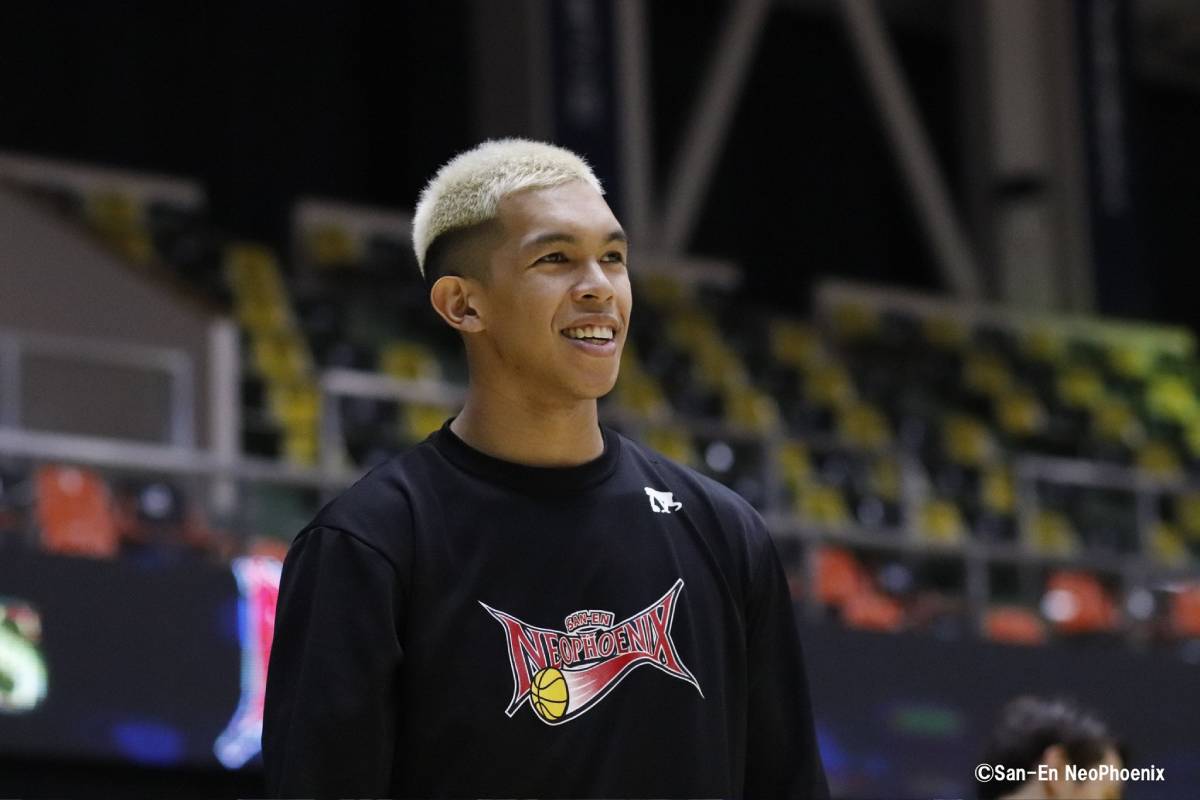
That is why Baldwin, his coaching staff, and the rest of the Samahang Basketbol ng Pilipinas are classifying the overseas pros like their local counterparts in the Philippine Basketball Association.
“Dwight will now fall into the same consideration bucket with the likes of other professional players,” bared Baldwin.
“That’s a difficult situation for the Gilas program.
“As coaches, we have to do what is best for the program. Do talent and skill justify them coming in with short preparation time? Do we as a coaching staff give that player the same consideration as we do with our full-time players? We have to answer that question at the right time,” he continued.
Gilas have already proven that long preparation leads to good things.
Back in February, the national team — which is described by some as a “C team” since it was composed of fresh graduates and college student-athletes — was able to beat South Korea twice, blow out Indonesia, keep close with China in a tune-up, almost stunned Serbia, and matched up well with the Dominican Republic.
“We have to measure their values to Gilas based on two factors — chemistry and culture.
“We can easily add talent over chemistry but that might affect the results. It’s an extremely difficult assessment we have to make for every single player,” he explained.
It’s not to say that the federation will not invite the overseas pros to Gilas.
But what about the Gilas draftees Isaac Go, the Nieto twins, Rey Suerte, Allyn Bulanadi, Jordan Heading, William Navarro, Tzaddy Rangel, and Jaydee Tungcab; and collegiate standouts like Angelo Kouame, Justine Baltazar, Carl Tamayo, RJ Abarrientos, SJ Belangel, Dave Ildefonso, and other potential prospects who will be training hard inside a bubble starting later this month? By the time the overseas players arrive, they would have already built the chemistry needed for the Qualifiers.
It’s a careful thread Baldwin and the federation are walking on on a daily basis.
“Is it a black and white line or should we try to figure out some formula for each individual player? Will that addition of talent go hand in hand with chemistry and culture?” he wondered.
“There’s no defined formula for this. It is a ridiculously tough job but that’s the job.”

